Our latest podcasts can be found just below by scrolling down. You can also subscribe to our podcast, hosted by Anchor, through many services (Spotify, iTunes, etc.). If you cannot find our podcast on your favorite service, please let us know and we’ll do our best to make our podcast available on it.
Podcast
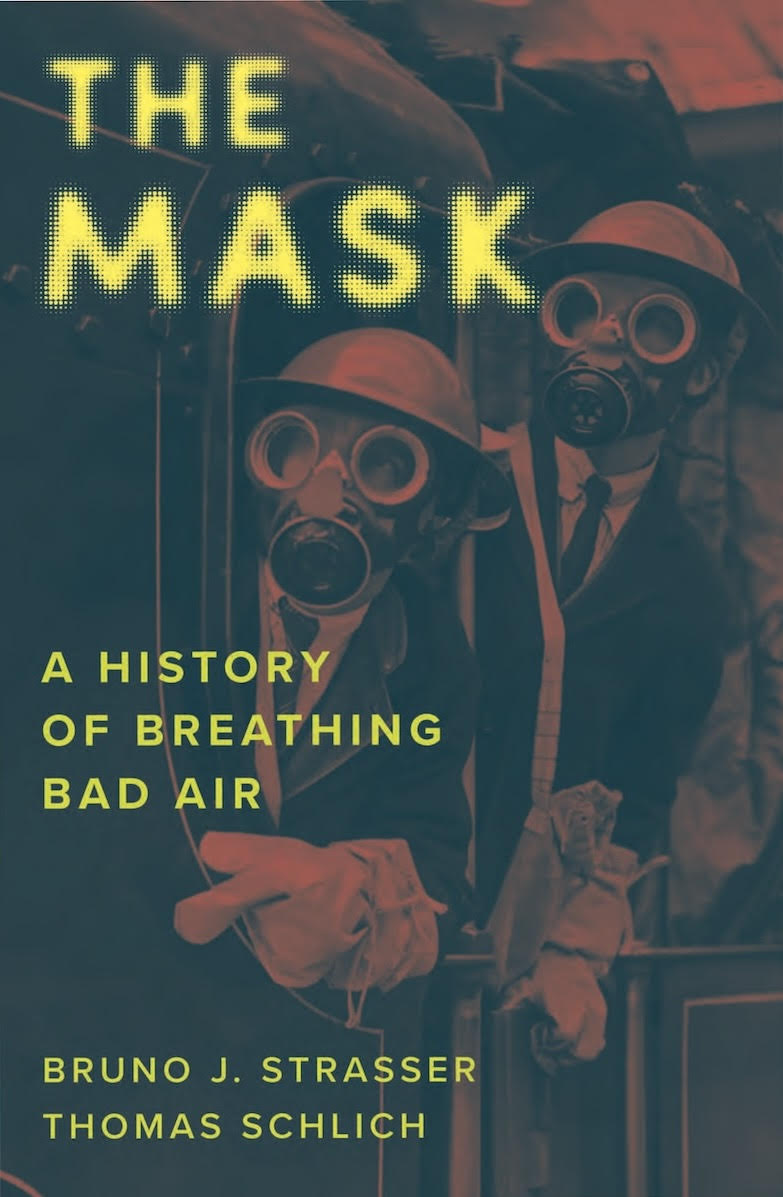
Episode 143 – The History of Masks with Bruno Strasser and Thomas Schlich
Bruno Strasser (University of Geneva) and Thomas Schlich (McGill University) come on the Infectious Historians podcast to discuss their recent book on the history of masks.
Episode Notes
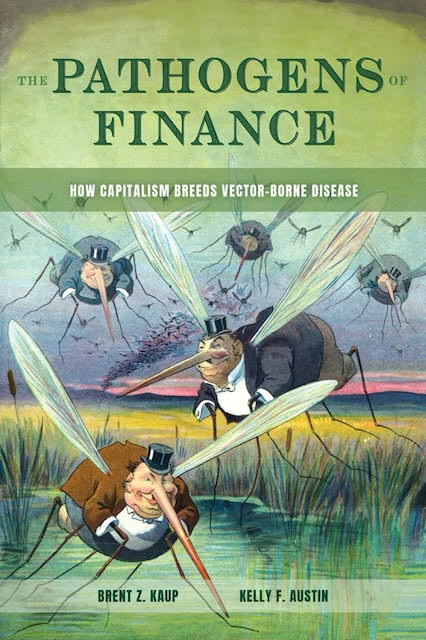
Episode 142 – Capitalism and Vector-Borne Disease with Brent Kaup and Kelly Austin
Brent Kaup (William & Mary University) and Kelly Austin (Lehigh University) join the Infectious Historians to discuss their new book connecting disease and capitalism.
Episode Notes
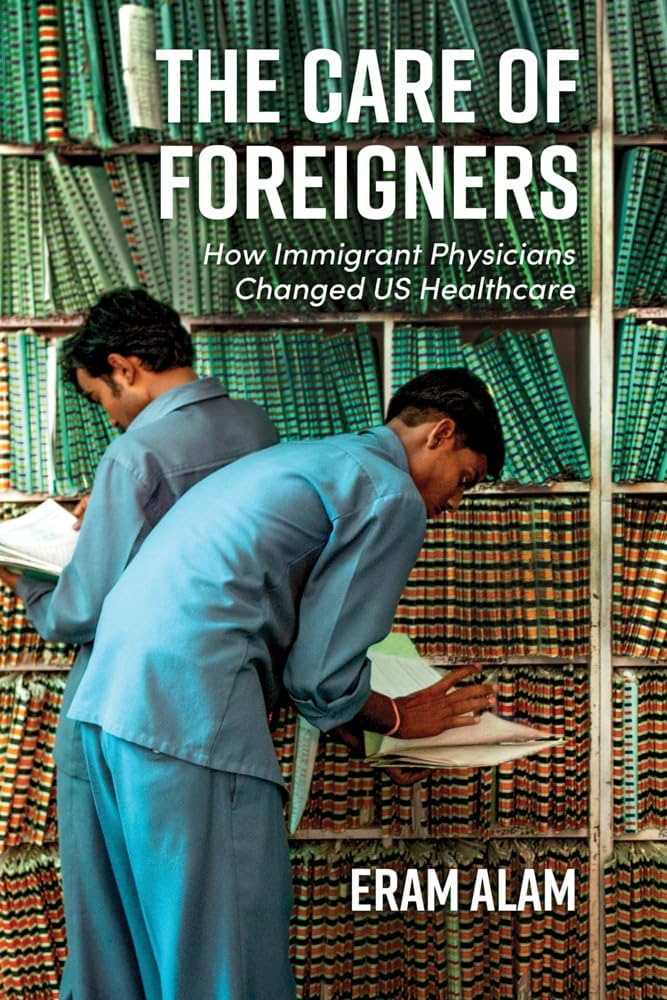
Episode 141 – Foreign Healthcare Workers with Eram Alam
Eran Alam (Harvard University) comes on the podcast to speak about foreign healthcare workers in the US.
Episode Notes
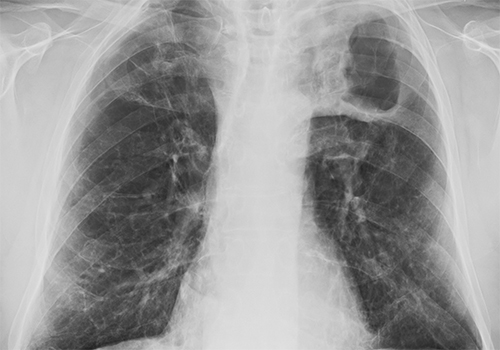
Episode 140 – Tuberculosis in World War I with Eric Story
Eric Story (Western University) joins Merle and Lee to talk about the social history of tuberculosis during and after World War I in Canada.
Episode Notes

Episode 139 – Risk in Late Antiquity with Cam Grey
Cam Grey (University of Pennsylvania) joins the Infectious Historians to discuss his new book on risk in the late Roman world.
Episode Notes

Episode 138 – Tuberculosis in Tanzania with Christoph Gradmann
Christoph Gradmann (University of Oslo) [https://www.med.uio.no/helsam/english/people/aca/ulrichcg/] comes on the podcast to talk about his book on 20th century tuberculosis in Tanzania.
Episode Notes
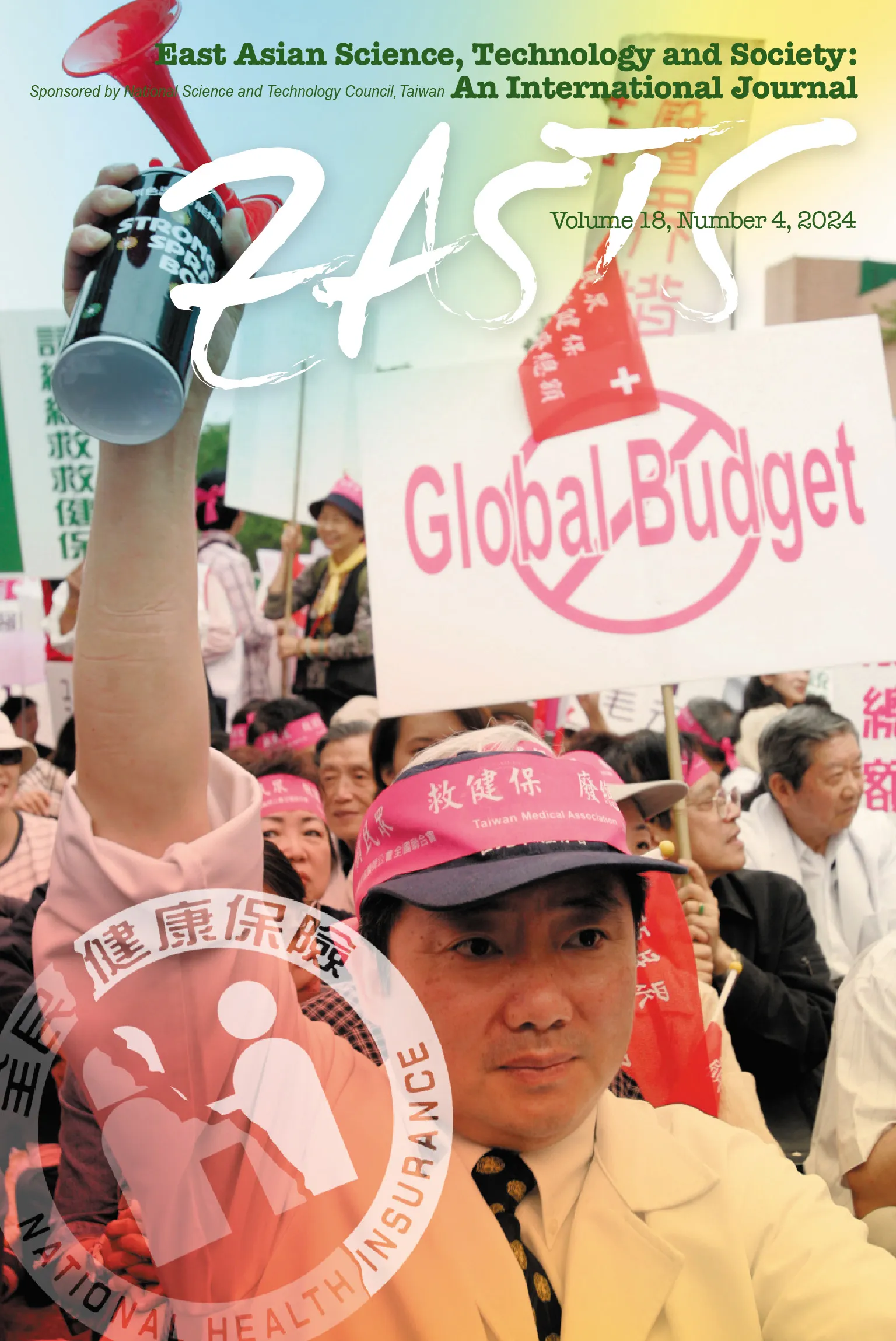
Episode 137 – Covid in Taiwan with Wayne Soon
Wayne Soon (University of Minnesota) comes on the podcast to talk about his work on Covid in Taiwan.
Episode Notes

Episode 136 – Bioarchaeology with Jordan Wilson and Janet Kay
Jordan Wilson (Georgetown University) and Janet Kay (Independent scholar) join Merle and Lee to talk about an article they wrote on the bioarchaeology of plague.
Episode Notes

Episode 135 – Avian Flu with Natalie Porter
Natalie Porter (independent scholar) joins Merle and Lee to discuss her work on Avian Flu in Vietnam.
Episode Notes

Episode 134 – Marian Devotion and Plague in Late Medieval Italy with Bianca Lopez
Bianca Lopez (Southern Methodist University) joins the Infectious Historians to discuss her work on plague, piety and power in late medieval Italy.
Episode Notes

Episode 133 – Cholera in 20th Century China with Xiaoping Fang
Xiaoping Fang (Monash University) joins the Infectious Historians to talk about cholera in China in the mid-20th century
Episode Notes
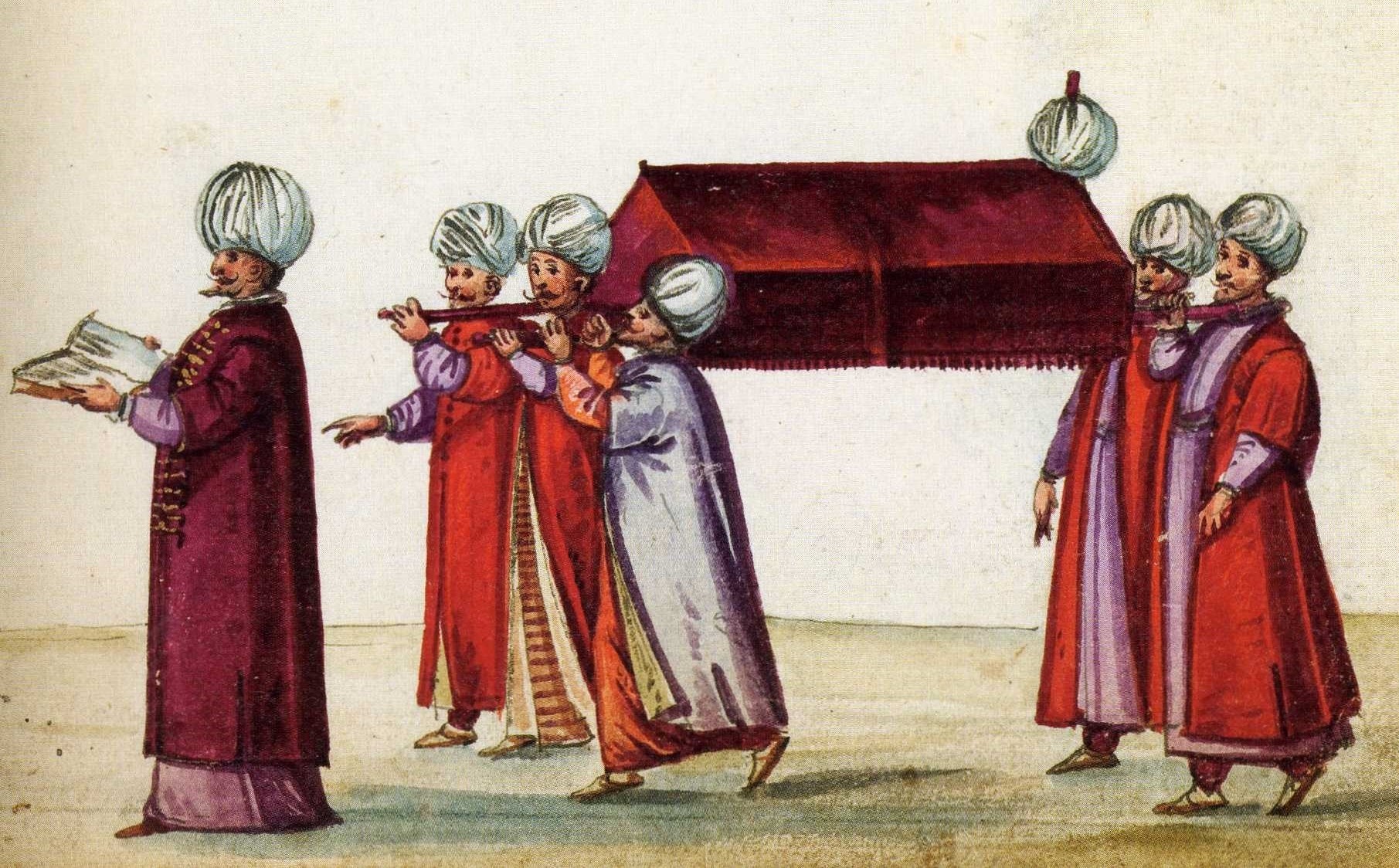
Episode 132 – Plague in the Ottoman Empire with Einar Wigen
Einar Wigen (University of Oslo) comes on the podcast to discuss the Ottoman experience of plague.
Episode Notes
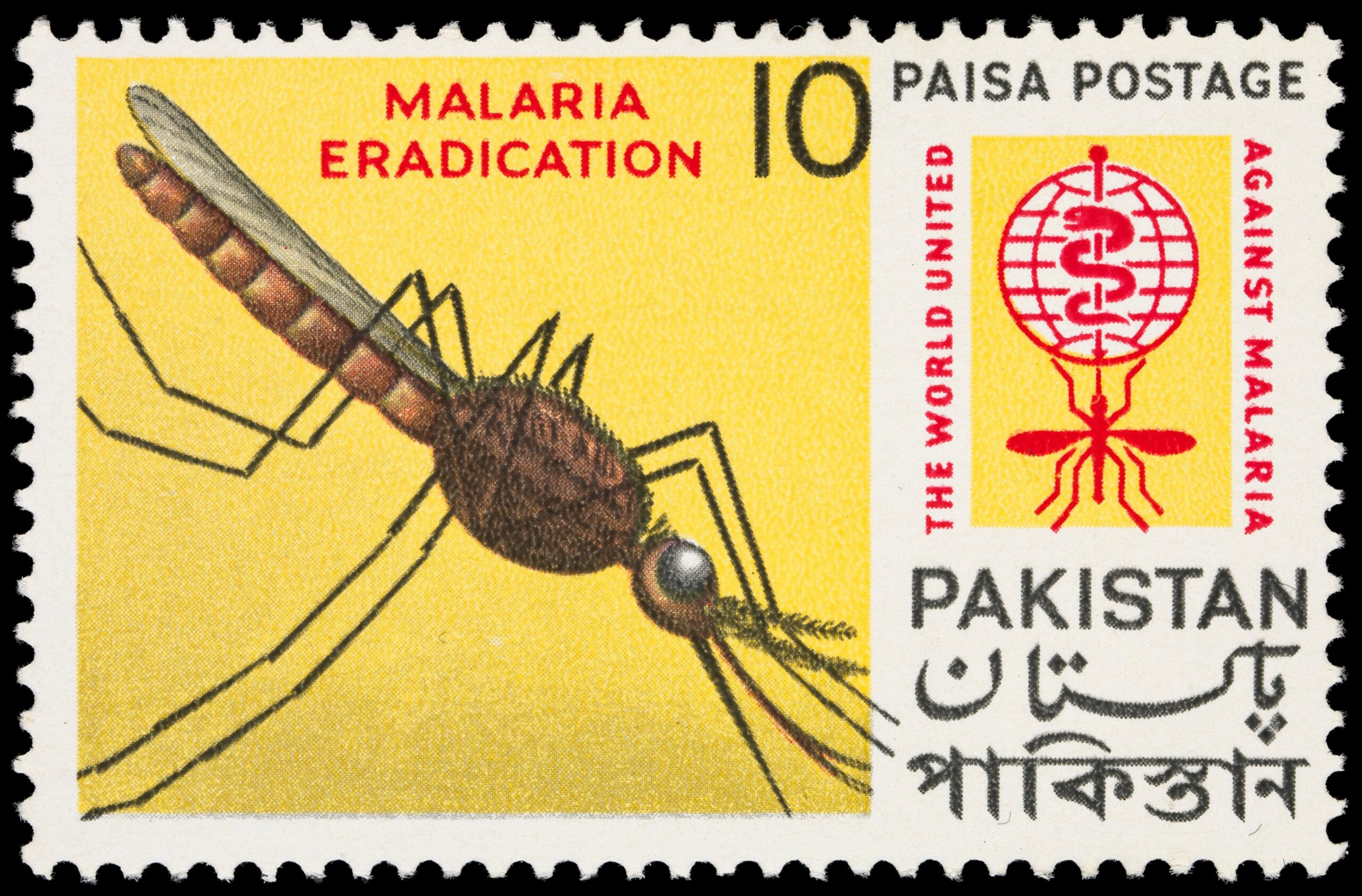
Episode 131 – Pandemic Ends with Erica Charters
Erica Charters (University of Oxford) joins the Infectious Historians to discuss how pandemics end.
Episode Notes
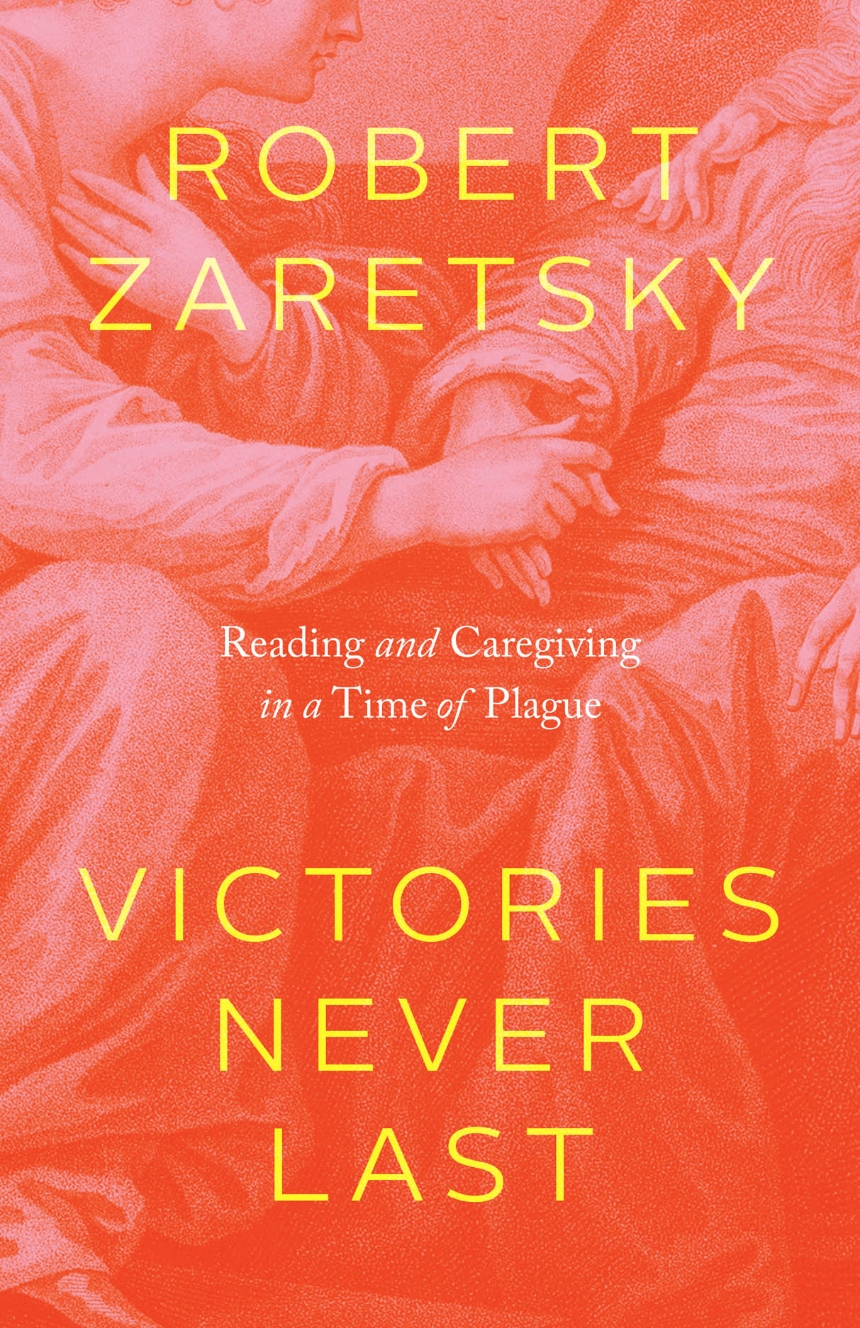
Episode 130 – Reading and Caregiving during Covid with Robert Zaretsky
Robert Zaretsky (University of Houston) reflects on his experiences during Covid while reading “plague literature” and volunteering as an aide at a nursing home.
Episode Notes
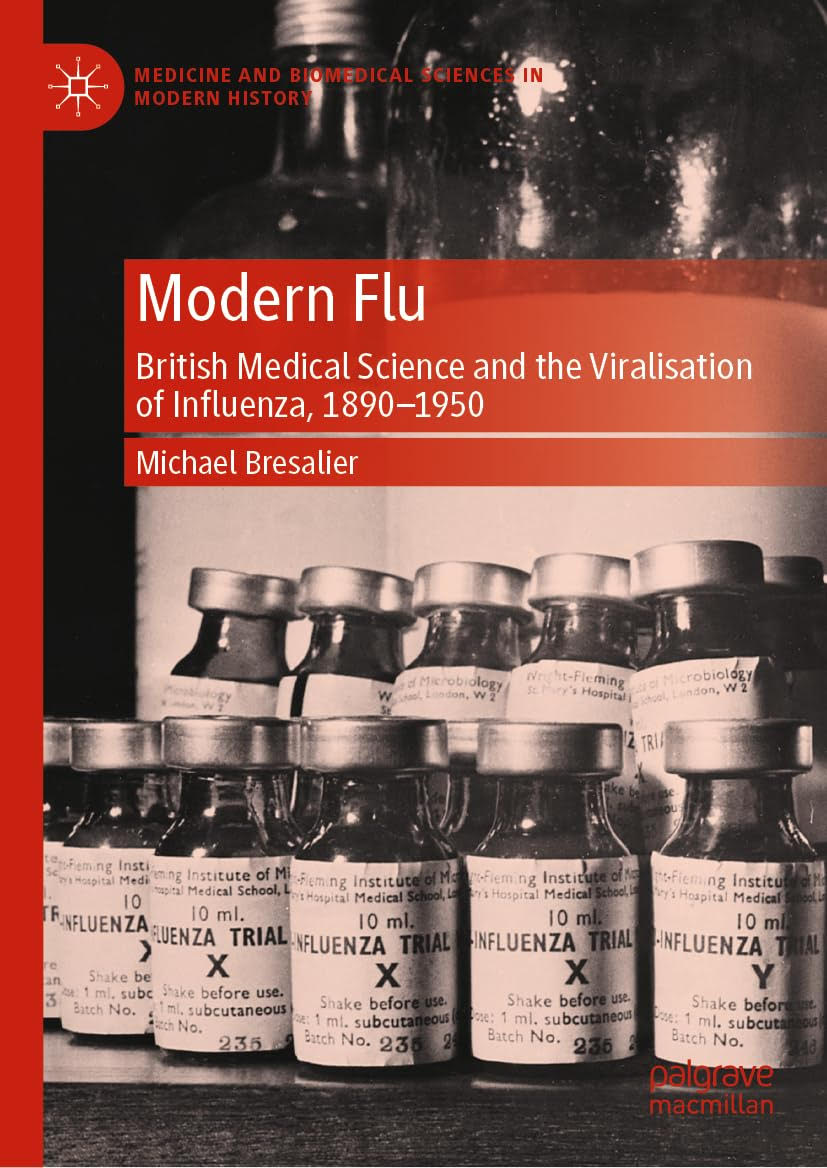
Episode 129 – Modern Flu with Michael Bresalier
Michael Bresalier (Swansea University) comes on the podcast to discuss his work on the flu.
Episode Notes
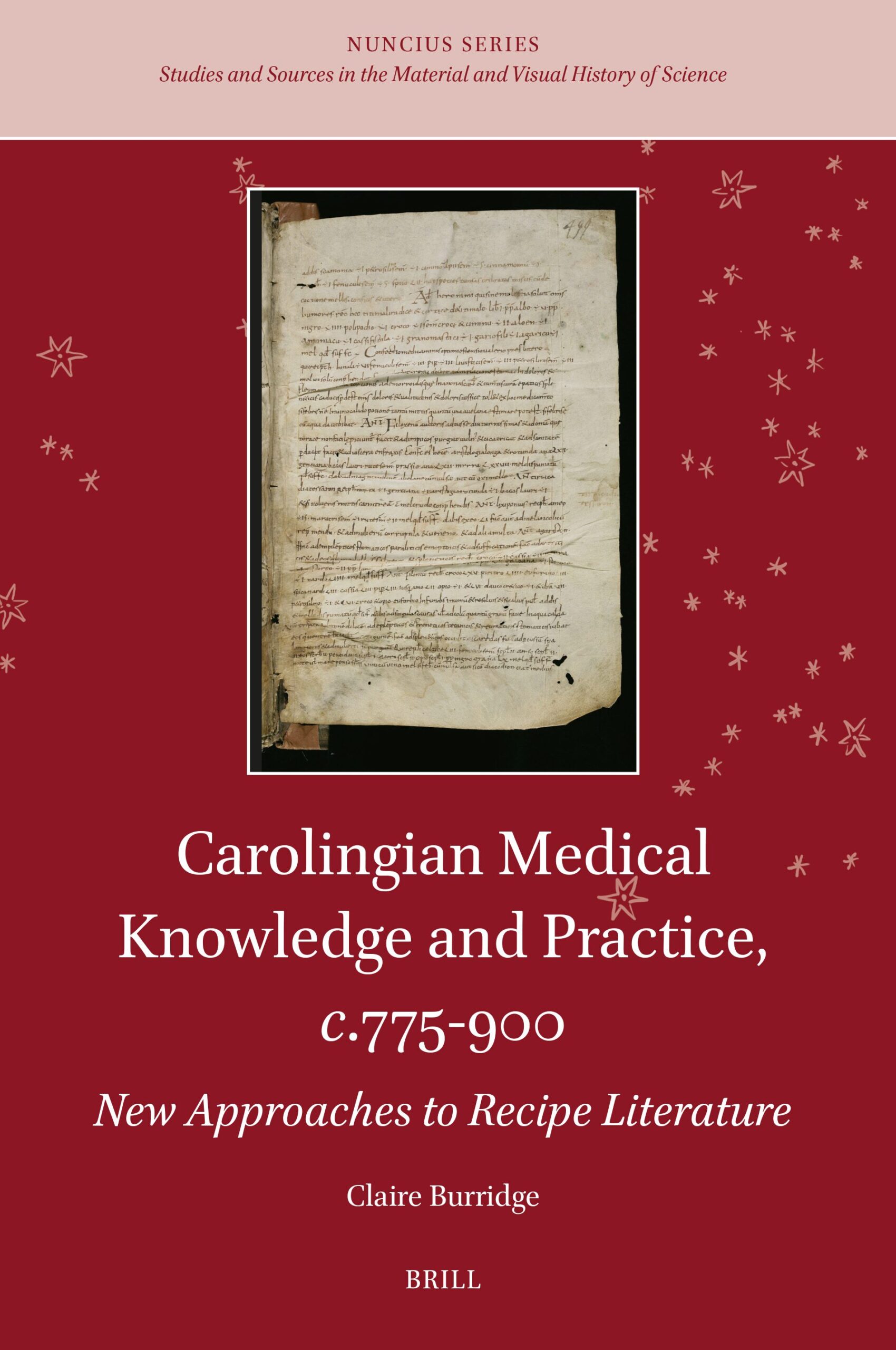
Episode 128 – Medieval Recipes with Claire Burridge
Claire Burridge (University of Oslo) joins Merle and Lee to discuss her work on medieval recipes.
Episode Notes

Episode 127 – Infectious Diseases and Podcasting with Erin Welsh and Erin Allmann Updyke
Erin Welsh and Erin Allmann Updyke , the hosts of This Podcast Will Kill You, join the Infectious Historians to reflect on podcasting and infectious diseases.
Episode Notes
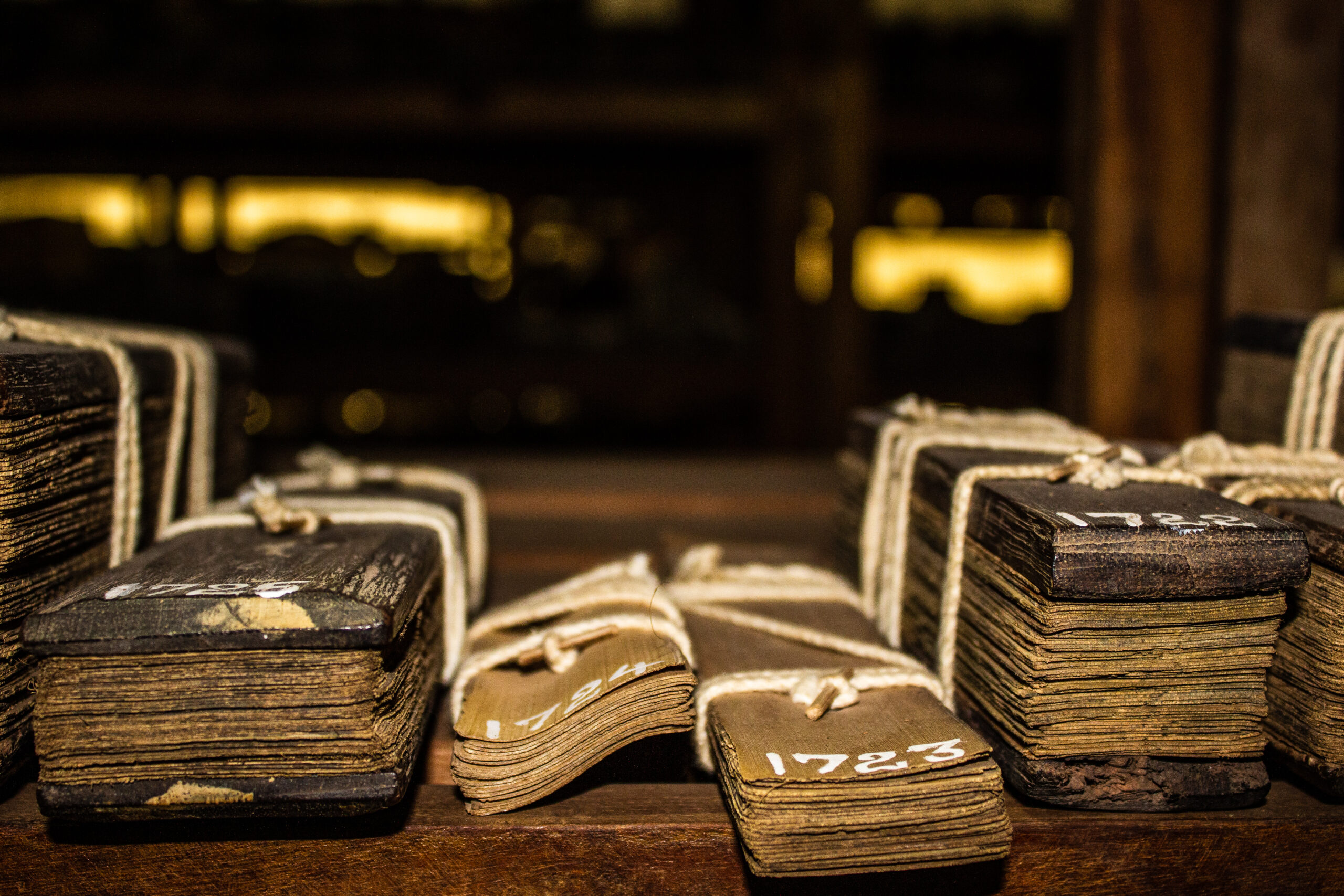
Episode 126 – South Asian Medicine with Anthony Cerulli
Anthony Cerulli (University of Wisconsin - Madison) joins the infectious historians to discuss medicine in South Asia.
Episode Notes
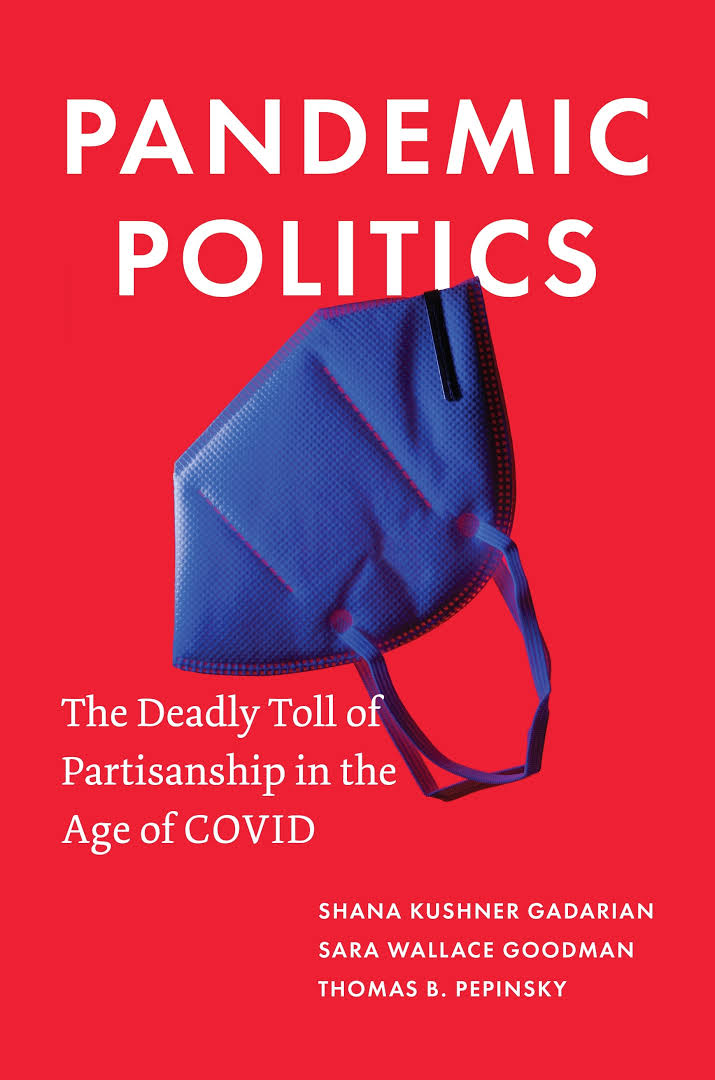
Episode 125 – Pandemic Politics during Covid-19 with Shana Gadarian
Shana Gadarian (Syracuse University) joins the infectious historians to discuss her book on politics and their influence on behavior during Covid-19
Episode Notes
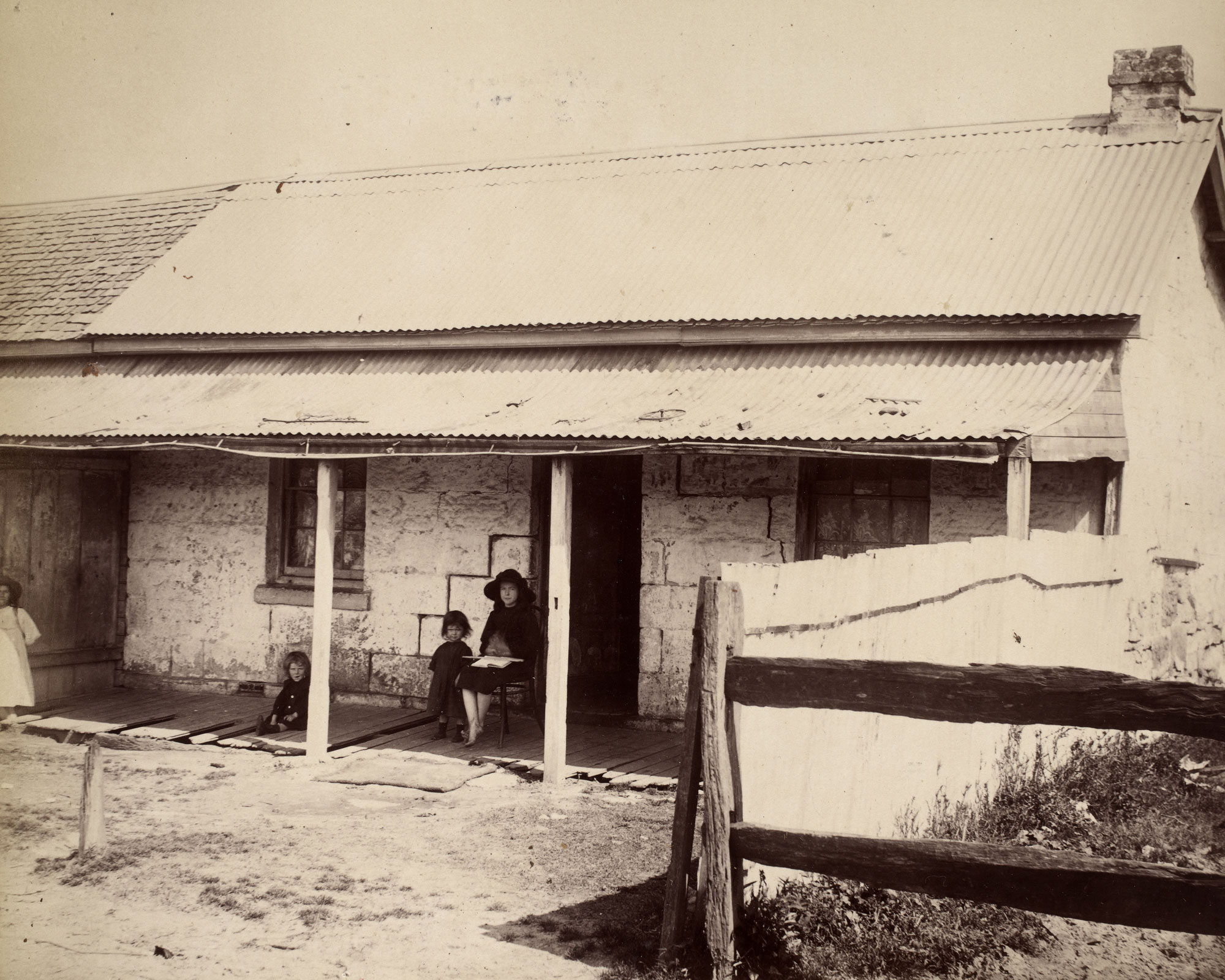
Episode 124 – Emotions and Plague with Philippa Nicole Barr
Philippa Nicole Barr (Australia National University) speaks to the Infectious Historians about her work on the public emotions surrounding the outbreak of the third plague pandemic in Australia.
Episode Notes
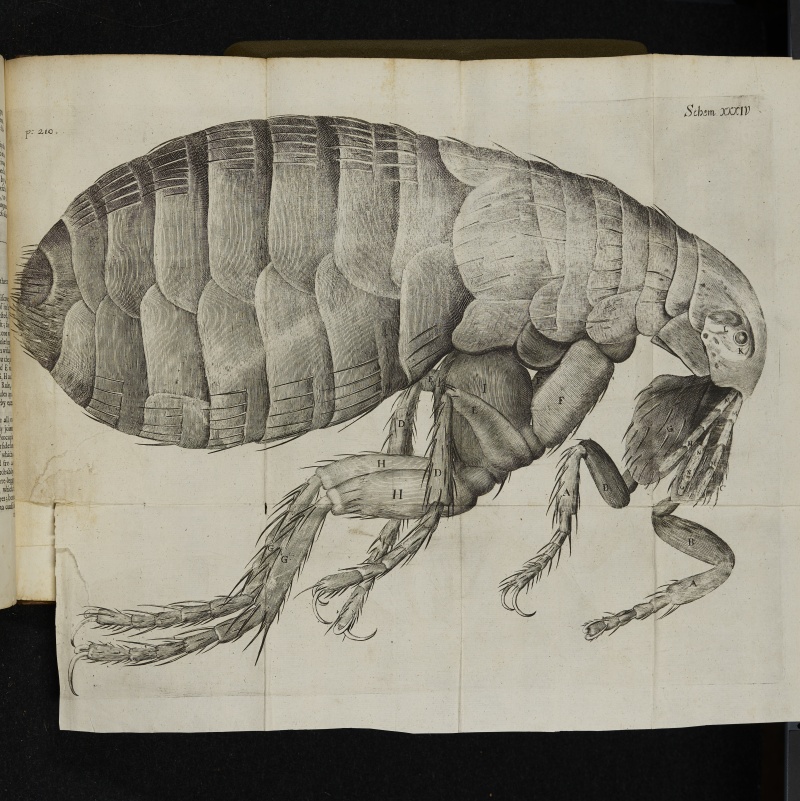
Episode 123 – Plague and Astrology with Michelle Pfeffer
Michelle Pfeffer (University of Oxford) joins the Infectious Historians and presents her work on astrology in the context of the second plague pandemic.
Episode Notes
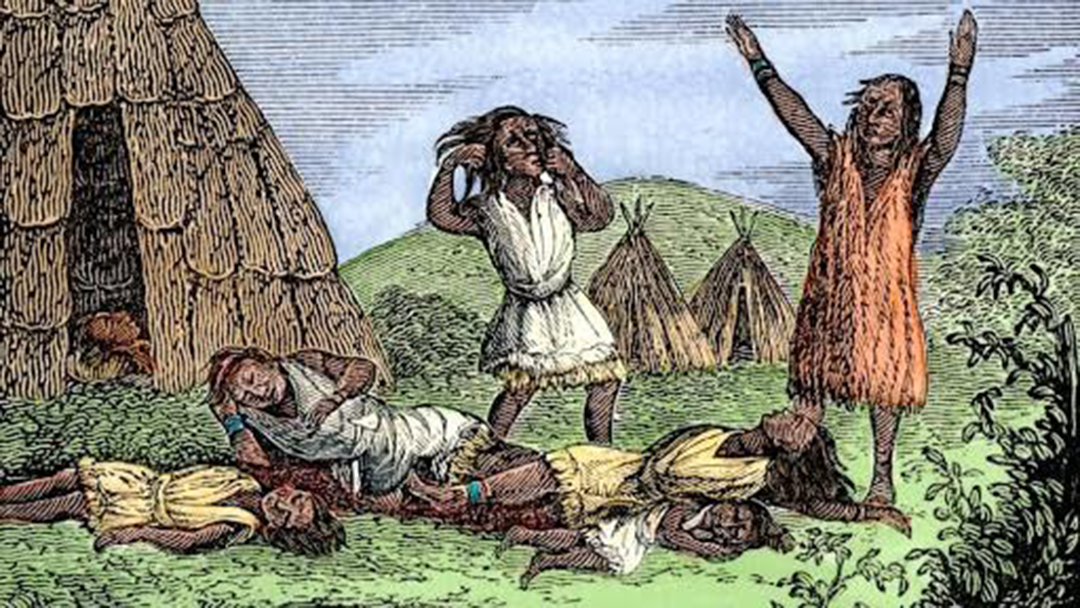
Episode 122 – Smallpox and Virgin Soil Epidemics with Jason Opal
Jason Opal (McGill University) speaks about smallpox and virgin soil epidemics in the Americas in the New World.
Episode Notes
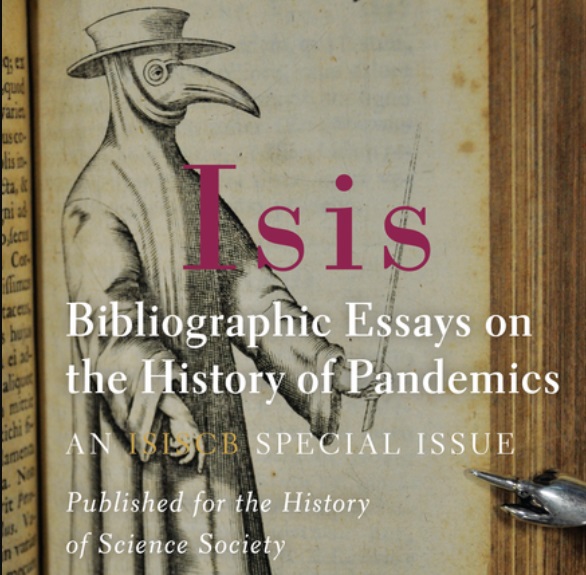
Episode 121 – A Special Journal Issue on Pandemics with Neeraja Sankaran and Stephen Weldon
Neeraja Sankaran (National Centre for Biological Sciences-TIFR) and Stephen Weldon (University of Oklahoma) join the Infectious Historians to discuss a special journal issue on pandemics they recently edited.
Episode Notes
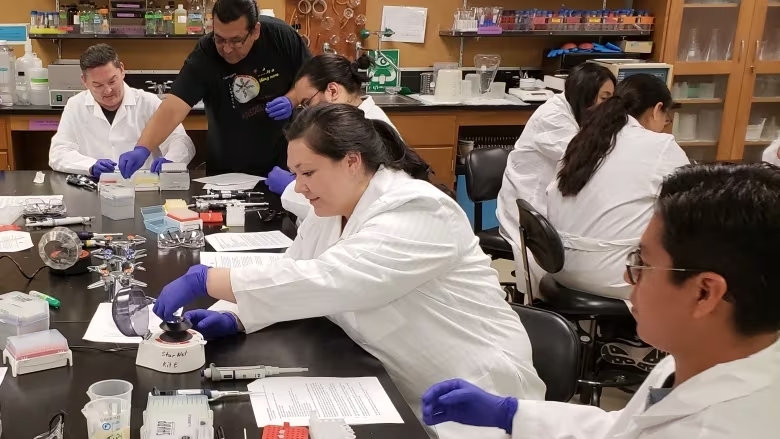
Episode 120 – Genomic & genetic research and racialized communities with Arafaat Valiani
Arafaat Valiani (University of Oregon) comes on the podcast to discuss developments in genomic and genetic research with racialized communities.
Episode Notes

Episode 119 – Yellow Fever and Climate with Keith Pluymers
Keith Pluymers (Illinois State University) joins the podcast to discuss Yellow Fever and Climate in late 18th century Philadelphia.
Episode Notes
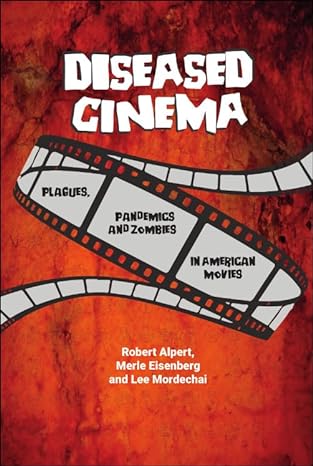
Episode 118 – Diseased Cinema: Plagues, Pandemics, and Zombies in American Film with Robert Alpert
Robert Alpert (Fordham University) joins the Infectious Historians to discuss the book they wrote together on disease in film.
Episode Notes
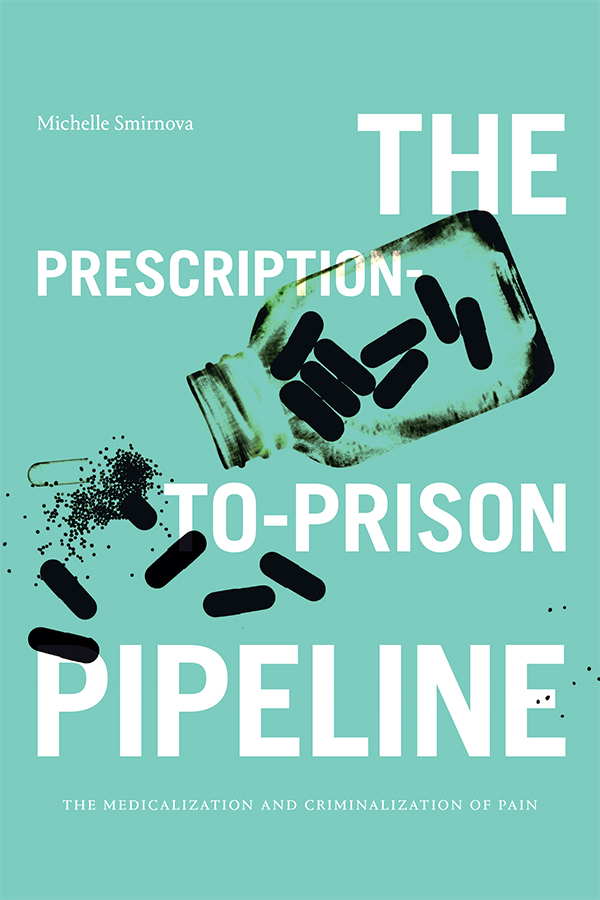
Episode 117 – The Prescription to Prison Pipeline with Michelle Smirnova
Michelle Smirnova (University of Missouri-Kansas City) returns to the podcast to discuss her new book on drugs and prison in the United States.
Episode Notes
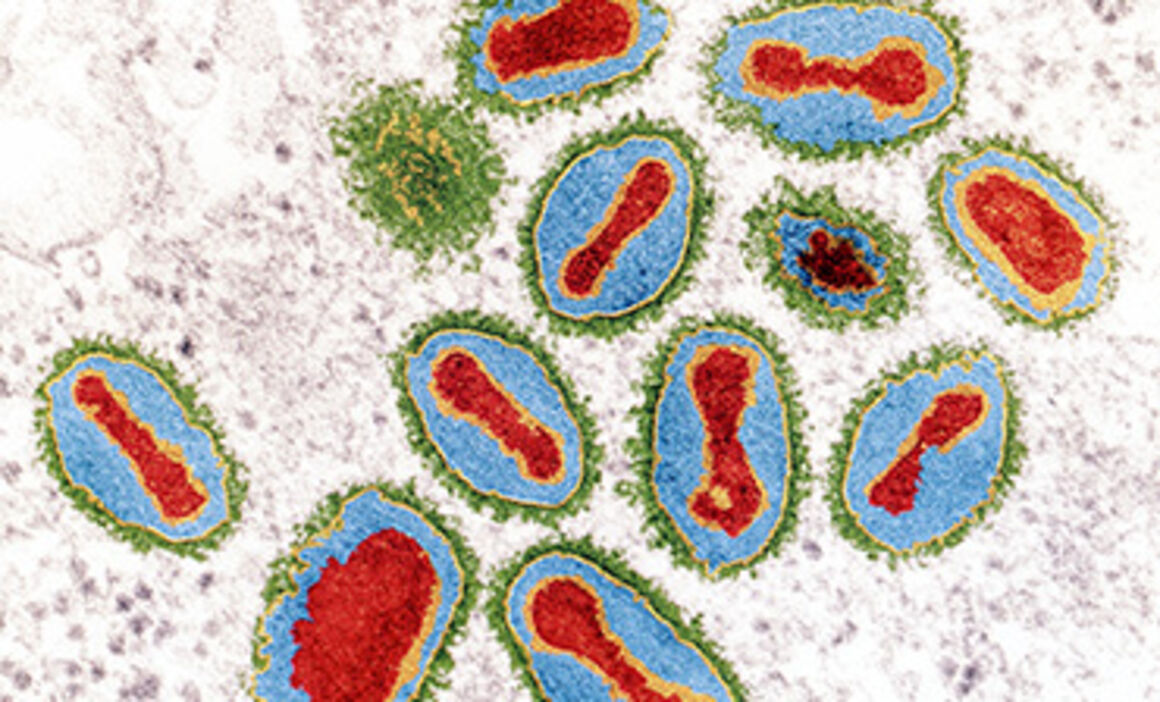
Episode 116 – Smallpox with Ana Duggan and Tim Newfield
Ana Duggan (McMaster) and Tim Newfield (Georgetown) come on the podcast to speak about smallpox and some of their research on this historical disease.
Episode Notes

Episode 115 – Medieval Music and Disease with Karen Cook
Karen Cook (University of Hartford) joins the podcast and speaks about her work on medieval music and potential connections to disease and epidemics.
Episode Notes
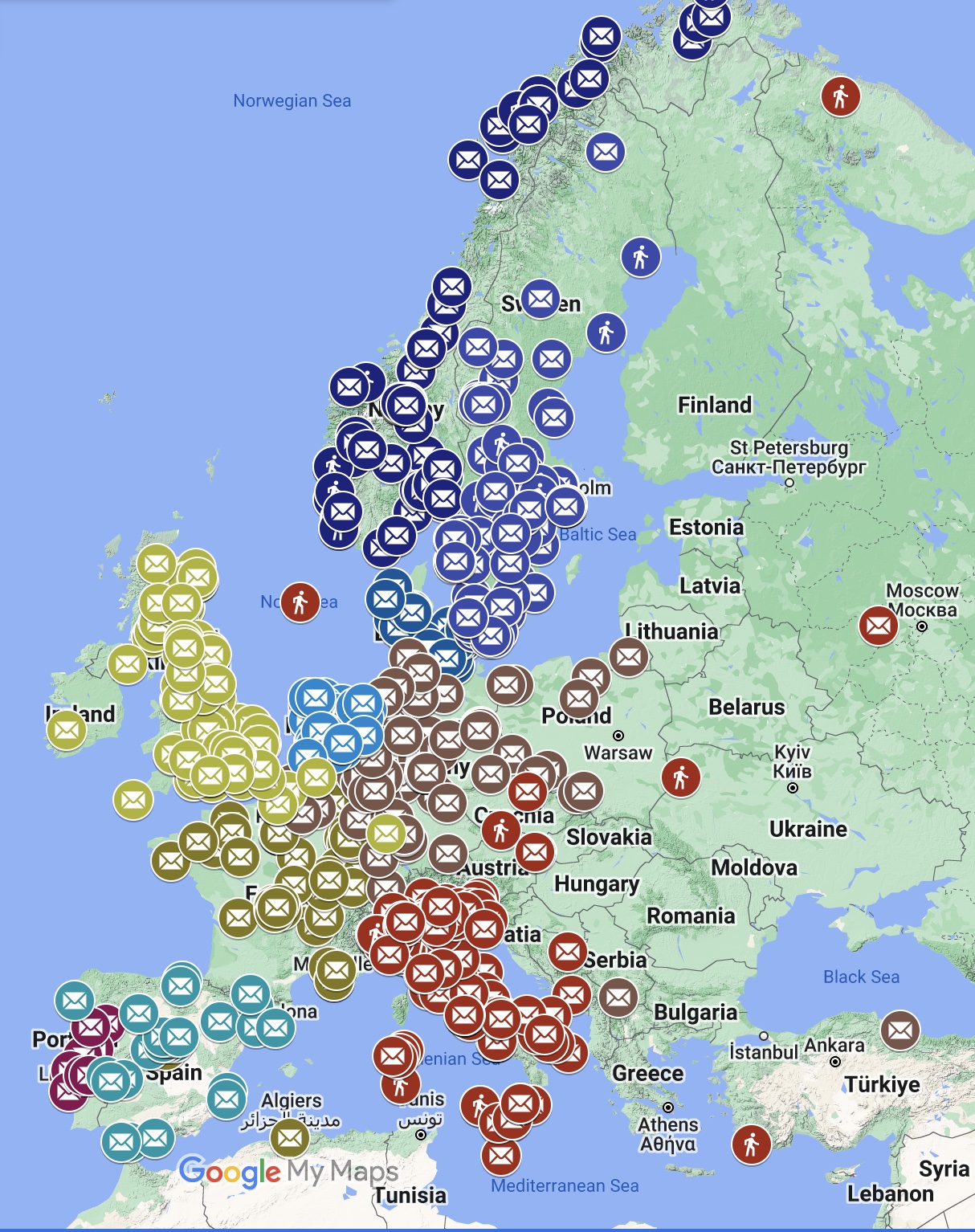
Episode 114 – The 1918-1919 Influenza Pandemic from a translocal and comparative perspective with John Eicher
John Eicher (Penn State Altoona) joins the Infectious Historians to discuss his project on the 1918-1919 Influenza Pandemic that examines the pandemic from a translocal and comparative perspective.
Episode Notes
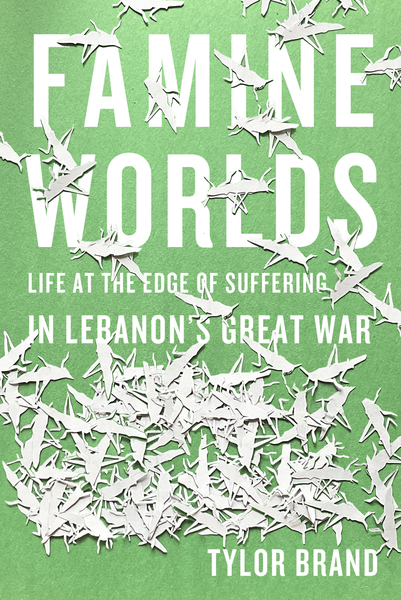
Episode 113 – Famine in Lebanon during World War I with Tylor Brand
Tylor Brand (Trinity College Dublin) joins Merle and Lee to discuss his recent book on Famine in Lebanon during World War I.
Episode Notes

Episode 112 – The Third Plague Pandemic in Java with Maurits Meerwijk
Maurits Meerwijk (Leiden University) joins the Infectious Historians to discuss his book on the effects of the third plague pandemic in Java in the first half of the 20th century.
Episode Notes
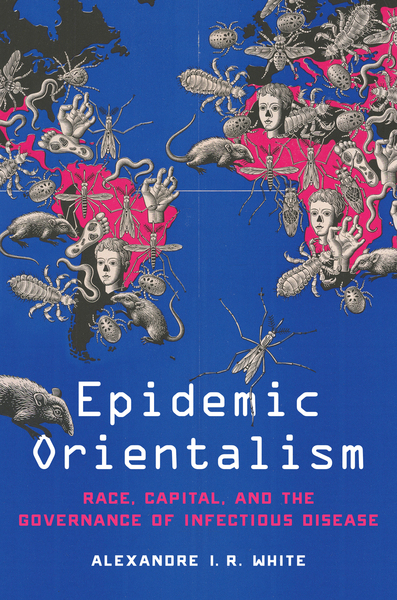
Episode 111 – Epidemic Orientalism with Alexandre White
Alexandre White (Johns Hopkins University) comes on the podcast to discuss his recent book on Epidemic Orientalism.
Episode Notes
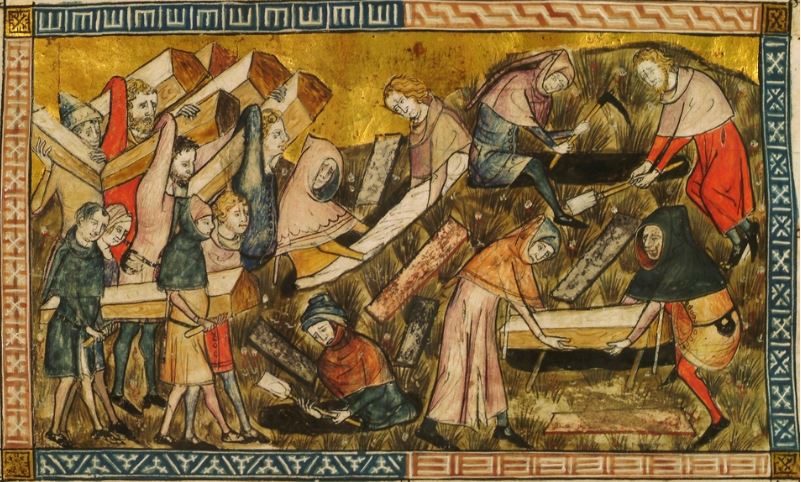
Episode 110 – Late Antique Disasters with Kristina Sessa
Kristina Sessa (Ohio State University) joins the Infectious Historians to discuss her recent work on late antique disasters - including diseases - within the broader context of premodern environmental history.
Episode Notes
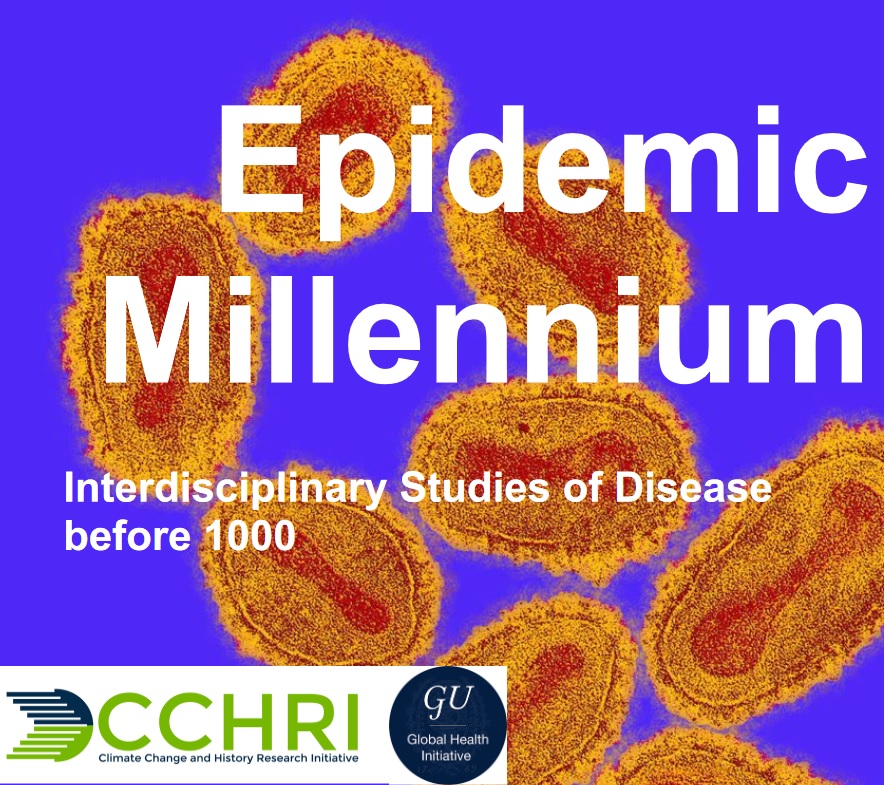
Episode 109 – Interdisciplinary Studies of Disease before 1000 (a recent conference Merle and Lee attended)
Merle and Lee discuss a recent conference on epidemics in the first millennium of the common era they both participated in at Georgetown University (in Washington DC).
Episode Notes
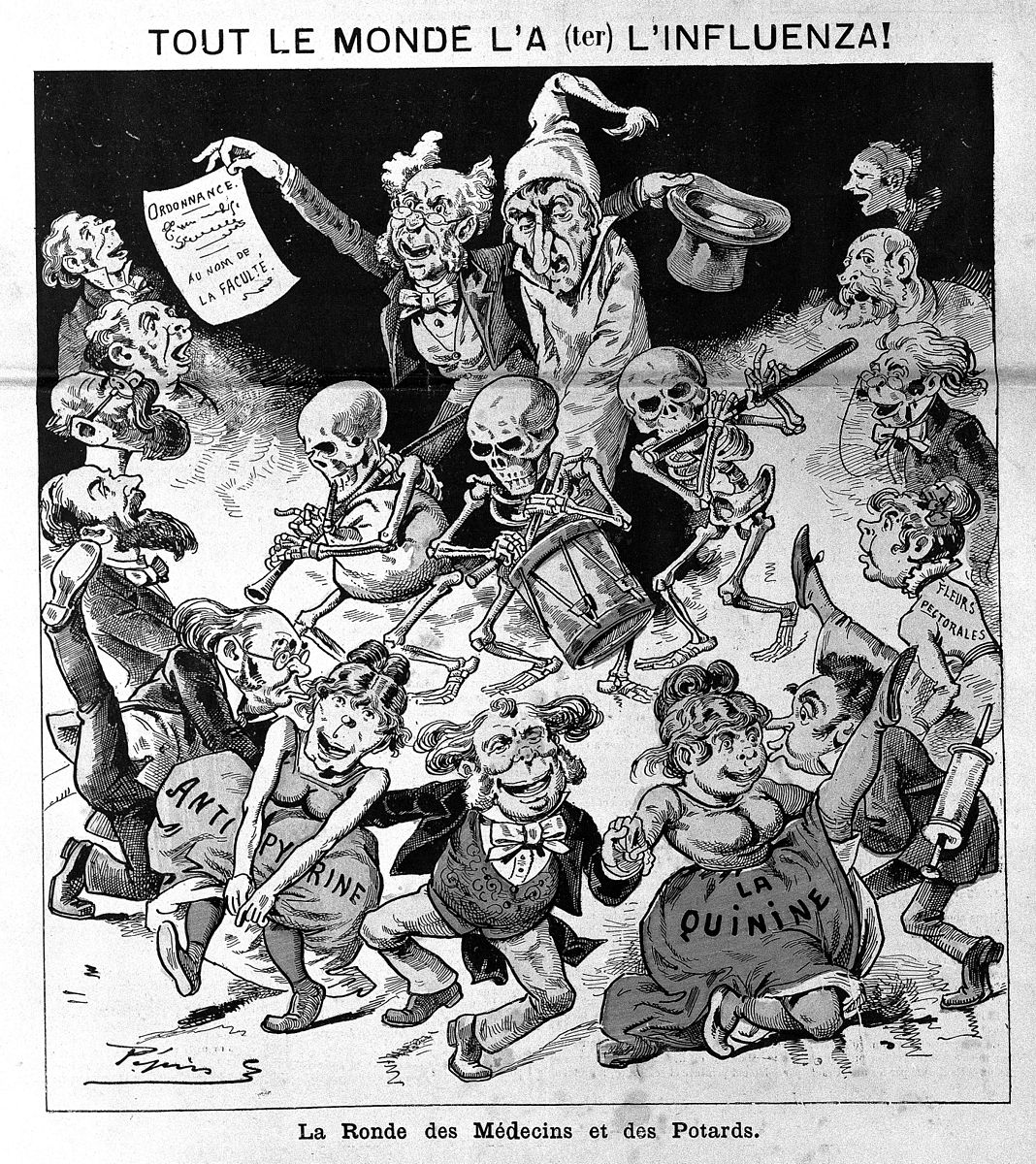
Episode 108 – The Russian Flu with Tom Ewing
Tom Ewing (Virginia Tech) comes on the podcast to discuss his work on the Russian Flu.
Episode Notes
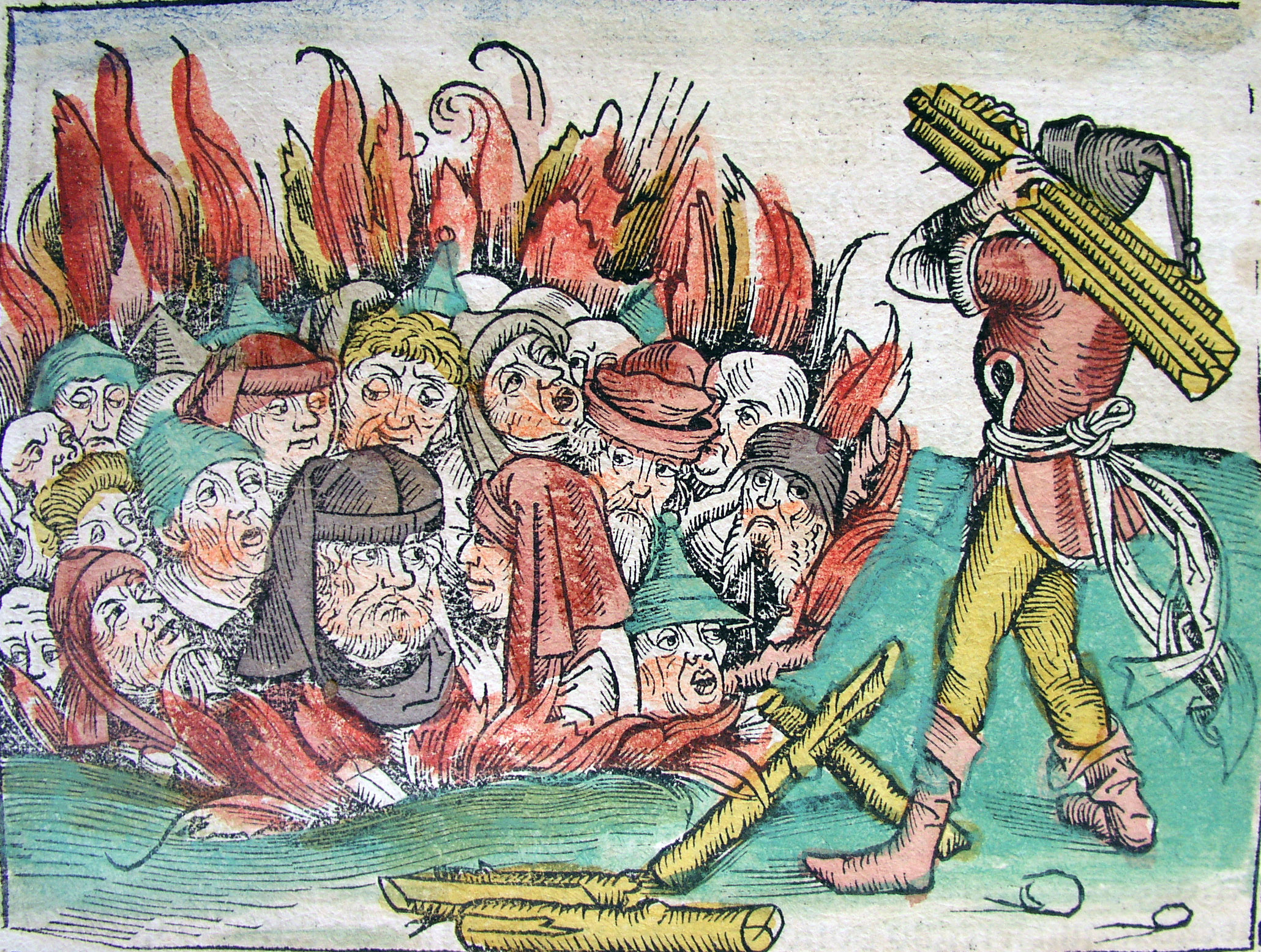
Episode 107 – Jews and Plague in Early Modern Europe with Joshua Teplitsky
Joshua Teplitsky (University of Pennsylvania) joins the Infectious Historians to discuss his work on Jews and the Plague in Early Modern Europe.
Episode Notes

Episode 106 – Knowledge, Science and Health in the Early Modern Caribbean with Pablo Gomez
Pablo Gomez (University of Wisconsin, Madison) discusses his work on health, knowledge and science in the 17th century Caribbean.
Episode Notes

Episode 105 – Disease and Healing in Ancient Mesopotamia with Troels Arboll
Troels Arboll (University of Copenhagen) joins the Infectious Historians to discuss his work on disease and healing in ancient Mesopotamia.
Episode Notes

Episode 104 – Disease, illness and religion in early modern French Canada with Mary Dunn
Mary Dunn (St. Louis University) joins the Infectious Historians to discuss her recent book on disease and religion in early modern French Canada.
Episode Notes

Episode 103 – The National Library of Medicine with Jeffrey Reznick
Jeffrey Reznick (The National Library of Medicine) joins the Infectious Historians to discuss his work as Chief of the History of Medicine Division at the National Library of Medicine.
Episode Notes

Episode 102 – DDT with Elena Conis
Elena Conis joins the Infectious Historians to discuss her recent book on the history of DDT and its use.
Episode Notes

Episode 101 – HIV-AIDS in Kenya with Alex Otieno
Alex Otieno (Arcadia University) joins the Infectious Historians to discuss HIV-AIDS, focusing on the pandemic in Kenya.
Episode Notes

Episode 100 – Infectious Historians’ 100th Anniversary
Merle and Lee reflect on the podcast’s past, present and future, Covid and teaching.
Episode Notes
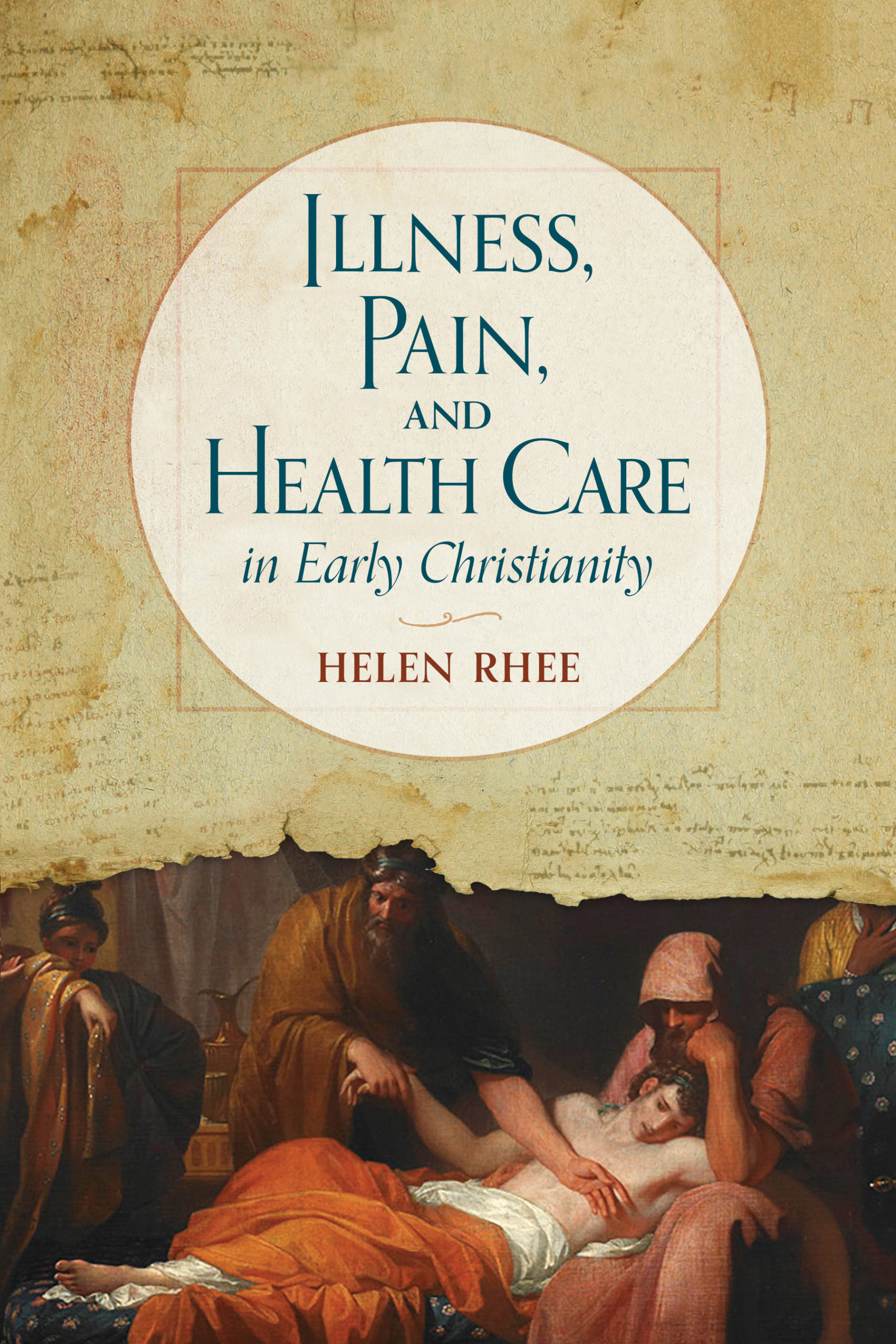
Episode 99 – Health and Illness in the Ancient World with Helen Rhee
Helen Rhee (Westmont College) joins Merle and Lee to talk about her recent book on illness, pain and healthcare in the ancient world and early Christianity.
Episode Notes
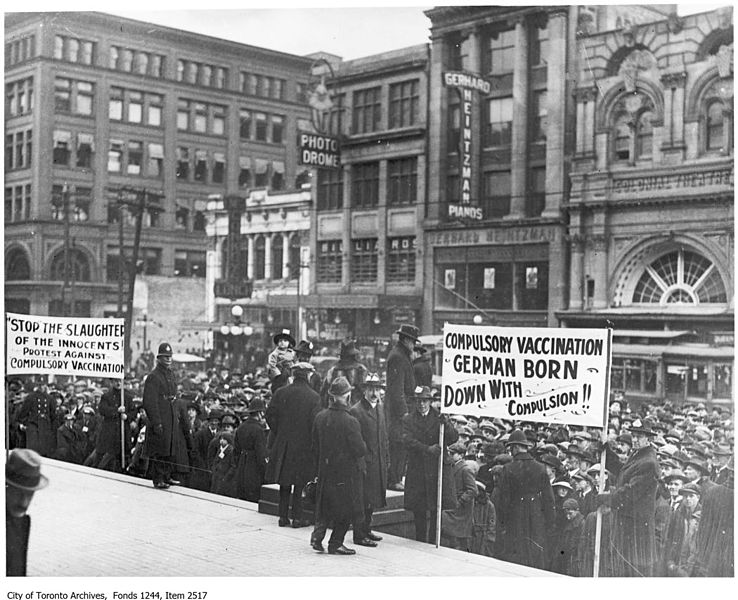
Episode 98 – Anti-Vaccination movements with Paula Larsson
Paula Larsson (University of Oxford) joins Merle and Lee to discuss her work on vaccinations and anti-vaccination movements.
Episode Notes
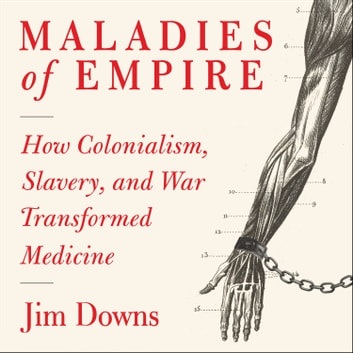
Episode 97 – Empire and the Development of Medicine with Jim Downs
Jim Downs (Gettysburg College) discusses his recent book on how empire transformed medicine with Merle and Lee.
Episode Notes
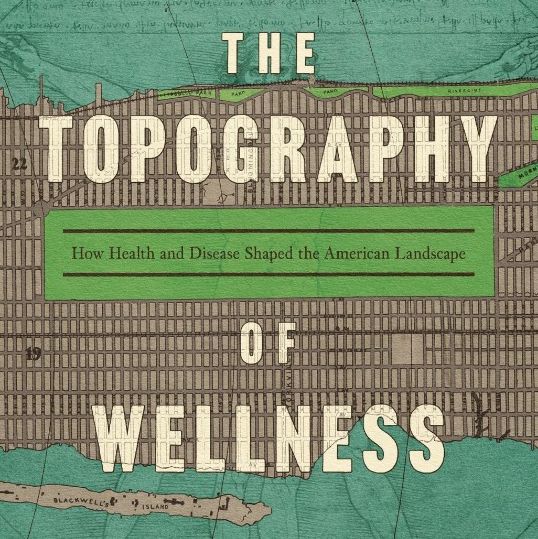
Episode 96 – Diseases and Urban Space with Sara Carr
Sara Carr (Northeastern University) joins Merle and Lee to talk about her work on redesigning urban space in response to a pandemic.
Episode Notes

Episode 95 – New Research on the Source of the Black Death with Maria Spyrou and Phil Slavin
Maria Spyrou (University of Tübingen) and Phil Slavin (University of Stirling) join the Infectious Historians to discuss their recent important article on the source of the Black Death, as well as interdisciplinary work.
Episode Notes
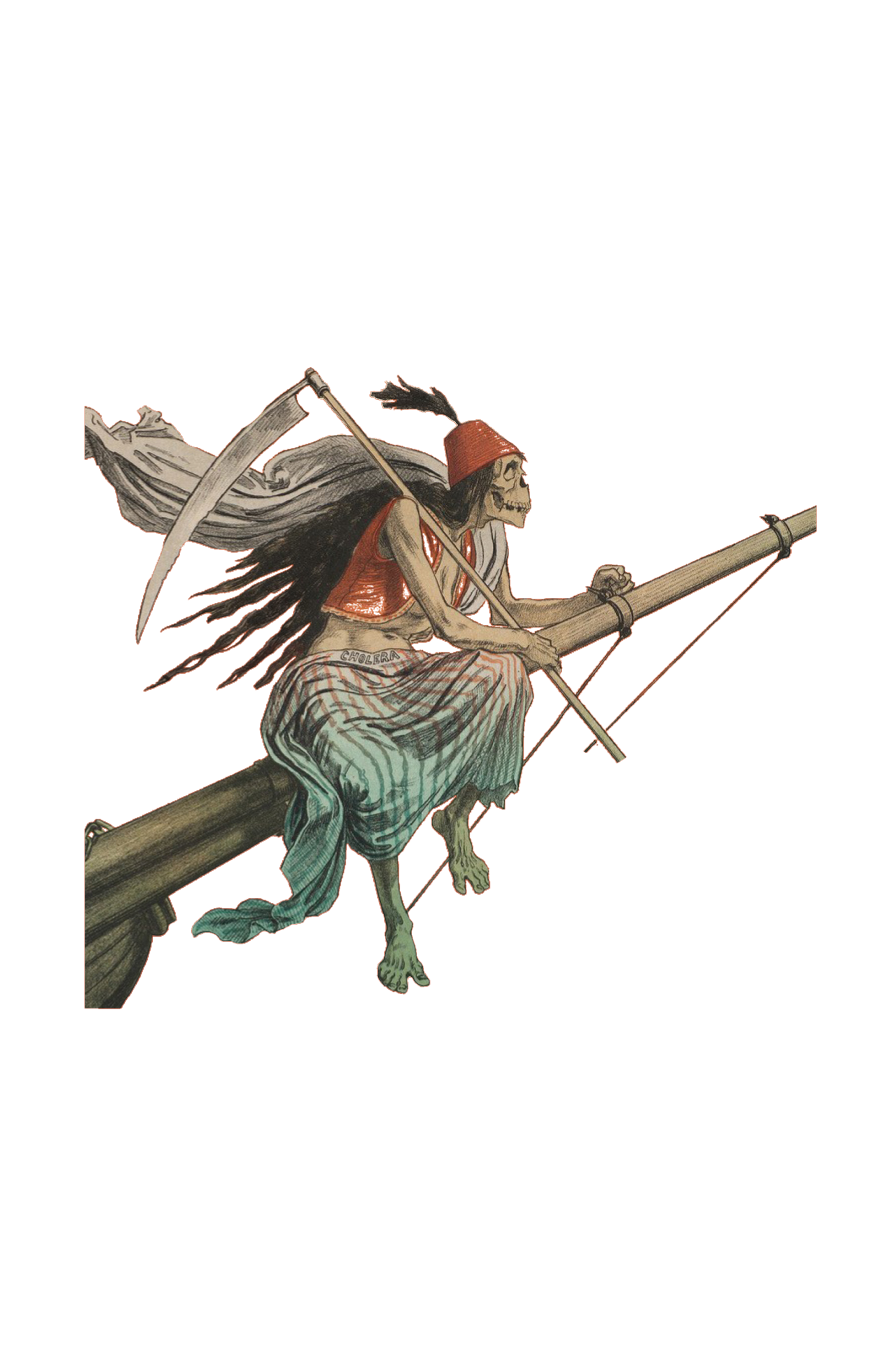
Episode 94 – Epidemic Empire and Colonialism with Anjuli Raza Kolb
Anjuli Raza Kolb (University of Toronto) joins the Infectious Historians to discuss her recent book on the history behind the metaphor of the “terrorism epidemic”.
Episode Notes

Episode 93 – Pollen, infectious disease and the Black Death with Adam Izdebski
Adam Izdebski (Max Planck Institute for the Science of Human History) joins Merle and Lee to discuss his work bridging the science/history gap by examining ancient pollen.
Episode Notes

Episode 92 – Tropical Disease & Medicine with Suman Seth
Suman Seth talks about the practice of medicine in the British colonies during the 18th century.
Episode Notes
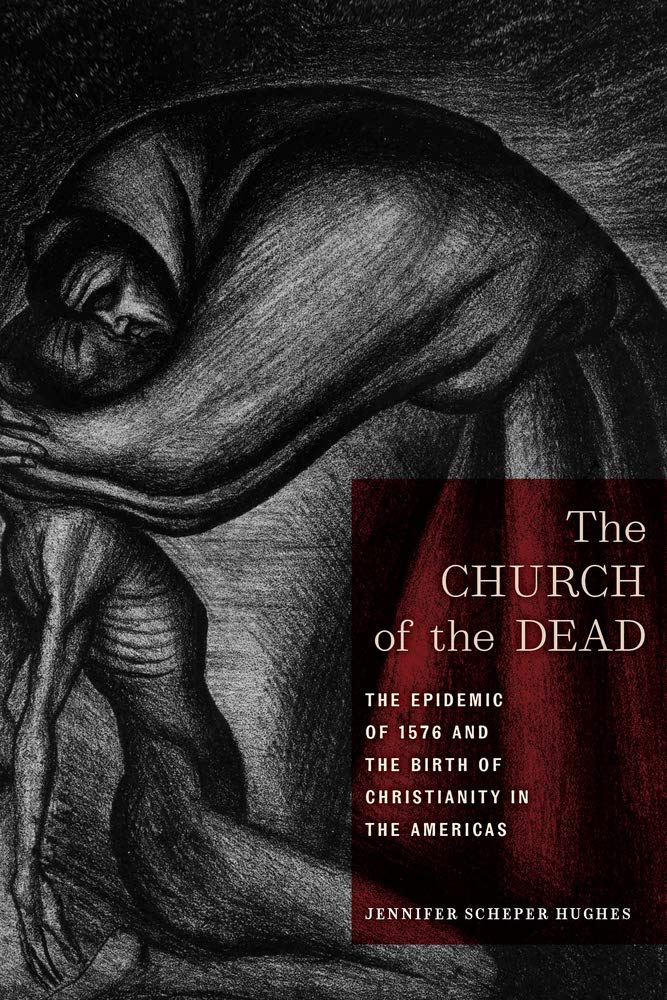
Episode 91 – The Mexican Church and Disease in the 16th century with Jennifer Hughes
Jennifer Hughes joins the Infectious Historians to discuss her work on church and society in 16th century Mexico within the Spanish Empire while focusing on reactions to infectious disease.
Episode Notes
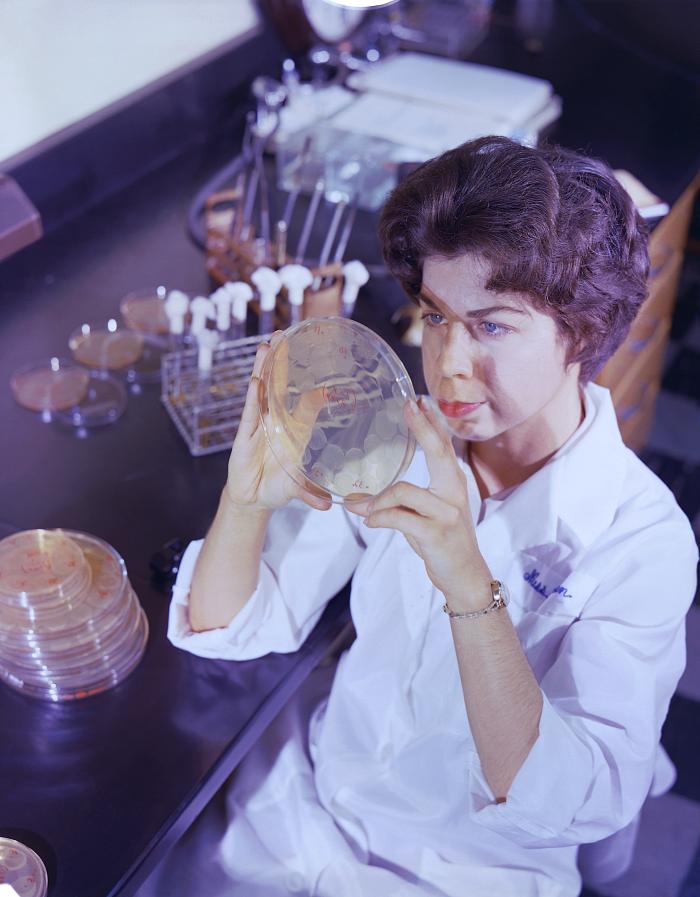
Episode 90 – Public Health Labs in History and during Covid with Claas Kirchhelle and Samantha Vanderslott
Claas Kirchhelle (University College Dublin) and Samantha Vanderslott (Oxford University) discuss the development and history of public health laboratories and their use during Covid.
Episode Notes
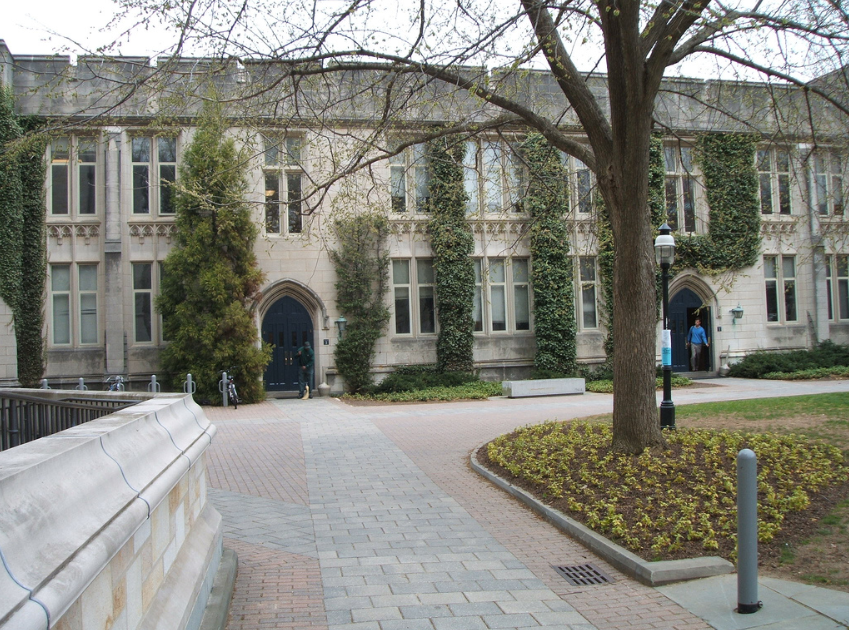
Episode 89 – Infectious Historians’ 2nd Anniversary!
Merle and Lee meet in person for the first time in two and a half years, and reflect on Covid, the podcast over the past year and its future directions.
Episode Notes

Episode 88 – Immigrants and Quarantine at Israel’s Founding with Rhona Seidelman
Rhona Seidelman (Oklahoma University) discusses the quarantine of immigrants arriving in Israel at the foundation of the state.
Episode Notes
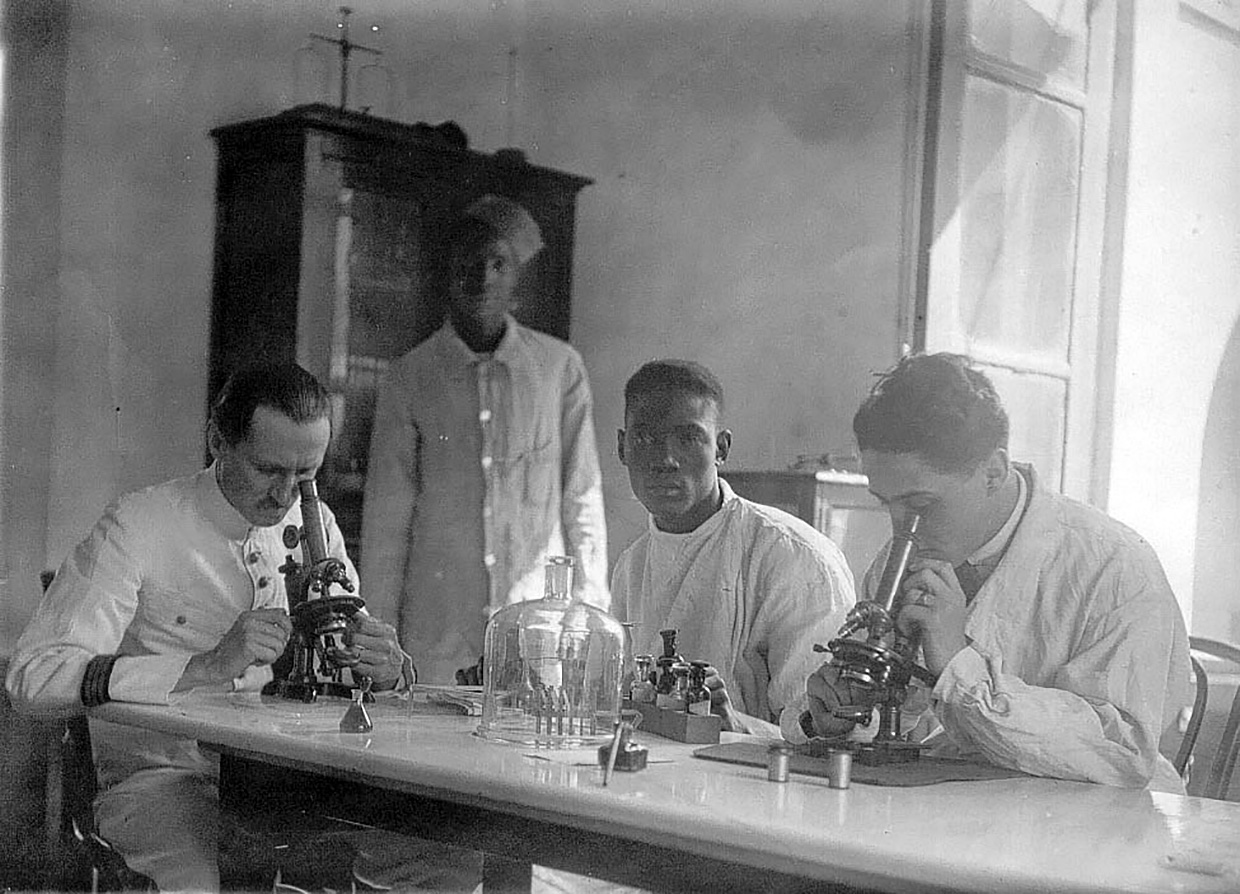
Episode 87 – Pasteur’s Empire with Aro Velmet
Aro Velmet (USC Dornsife) joins Merle and Lee to discuss his work on the Institut Pasteur in the context of colonial France in the late 19th century.
Episode Notes

Episode 86 – The Antonine Plague with Colin Elliott
Colin Elliot (Indiana University) discusses the Antonine Plague and the complicated history of trying to understand its impact during antiquity.
Episode Notes
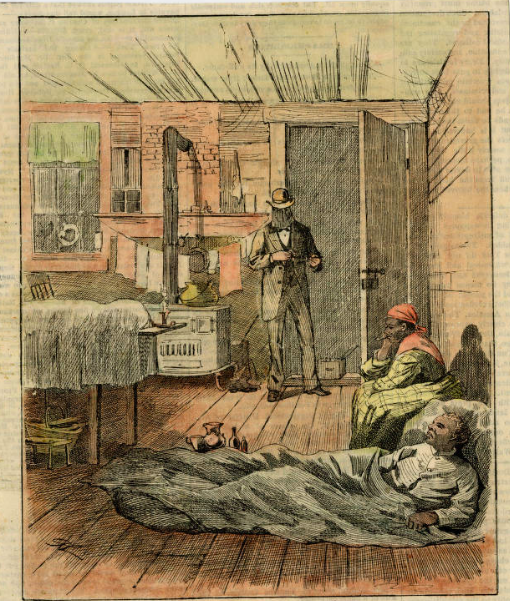
Episode 85 – Racial Scripts and Pandemics with Keith Wailoo
Keith Wailoo (Princeton University) joins the podcast to talk about his work on the role race and racialization play in the unfolding of pandemics.
Episode Notes

Episode 84 – Memories and the Modern Uses of the Black Death with Ben Dodds
Ben Dodds (Florida State University) joins the podcast to talk about his new book about memories, myths, and the modern uses of the Black Death.
Episode Notes

Episode 83 – Using Historical Epidemiology during Covid with Kaspar Staub
Kaspar Staub (University of Zurich) joins the podcast to talk about his historical epidemiology work and how it provides helpful context for the ongoing Covid pandemic.
Episode Notes

Episode 82 – Animals and Disease with Rebecca Kaplan
Rebecca Kaplan (Oklahoma State University) joins the Infectious Historians to discuss her work on animals and disease, focusing on brucellosis.
Episode Notes
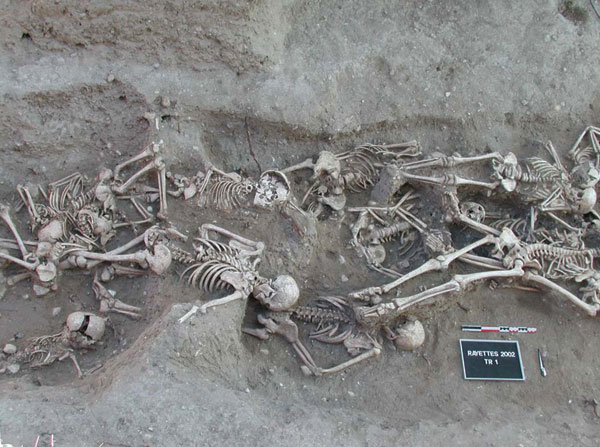
Episode 81 – Archaeology, Pandemics, and Climate Change with Susanne Hakenbeck
Susanne Hakenbeck (University of Cambridge) talks about the role of archaeology in understanding disease, pandemics, and climate change in the ancient and medieval periods.
Episode Notes

Episode 80- Places and Spaces in Disease and Public Health with Graham Mooney
Graham Mooney (Johns Hopkins University) joins the Infectious Historians to discuss how space and place shape the impact of a disease alongside how these ideas shape public health responses
Episode Notes

Episode 79 – Healthcare and Immigrant Healthcare in the United States with Beatrix Hoffman
Beatrix Hoffman (Northern Illinois University) joins the Infectious Historians to discuss the healthcare system in the United States and highlight the experience of immigrants in the country.
Episode Notes

Episode 78 – Covid in Iowa with Emily Mendenhall
Emily Mendenhall (Georgetown University) joins the Infectious Historians to discuss Covid in her hometown in northwest Iowa
Episode Notes

Episode 77 – Humans, Animals and the Environment in South Africa with Jules Skotnes-Brown
Jules Skotnes-Brown (University of St. Andrews) joins the podcast to discuss his work on the interface between humans, animals and the environment, particularly in the context of South Africa at the turn of the 20th century.
Episode Notes

Episode 76 – Vermin with Lisa Sarasohn
Lisa Sarasohn (Oregon State University) joins Merle and Lee to discuss her work on vermin, their interactions with humanity, and how humanity has perceived them over the past few centuries.
Episode Notes
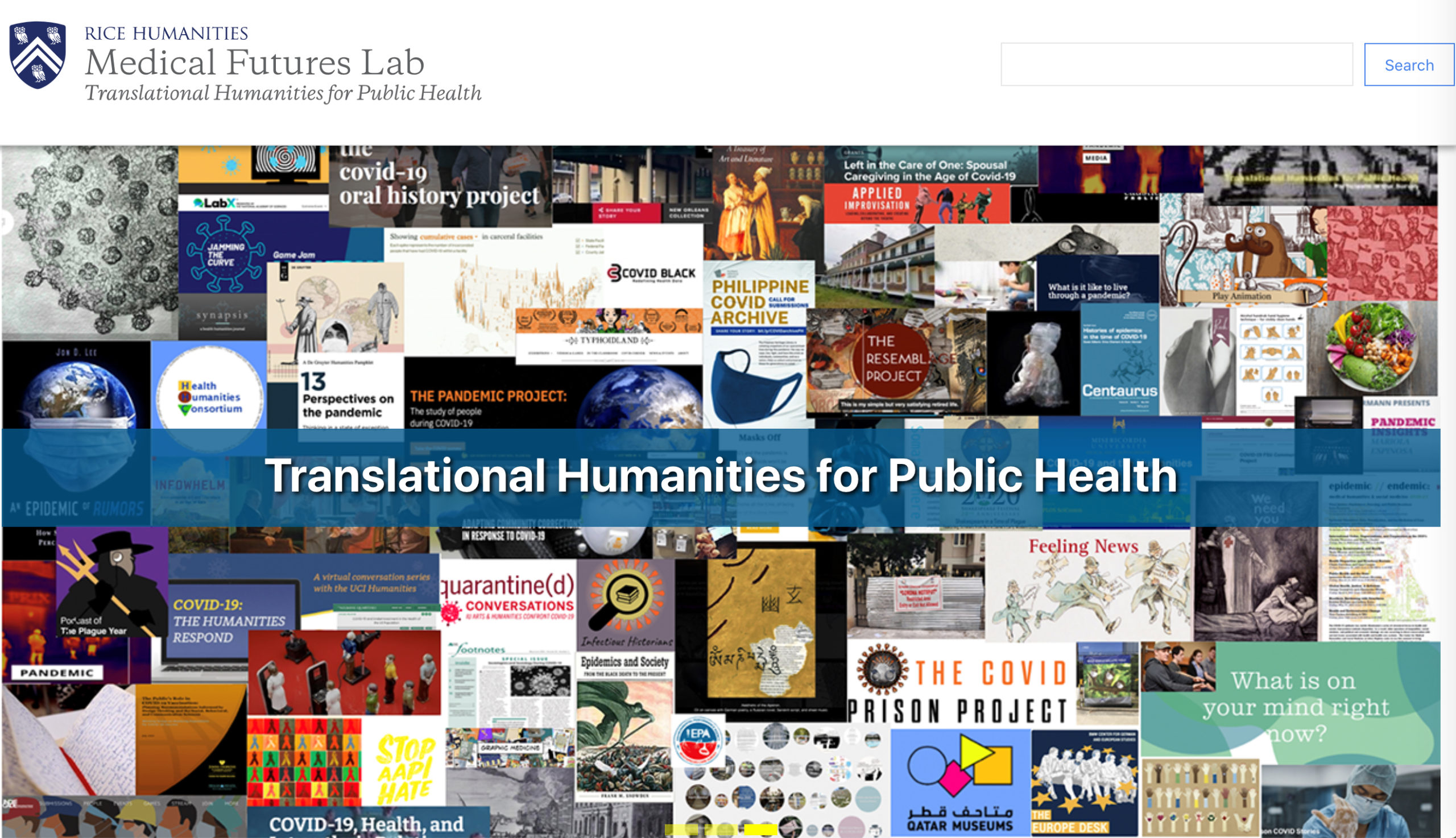
Episode 75 – Translational Humanities with Kirsten Ostherr
Kirsten Ostherr (Rice University) joins Merle and Lee to discuss her translational humanities website - which gathers humanities projects that attempt to make a direct intervention during Covid.
Episode Notes

Episode 74 – Smallpox, Inoculations, and the American Revolution with Andrew Wehrman
Andrew Wehrman (Central Michigan University) discusses the role of smallpox and inoculations during the American Revolution.
Episode Notes

Episode 73 – Reflecting on Disease during Covid
Merle and Lee take a step back to reflect on disease studies based on their experiences in the past.
Episode Notes
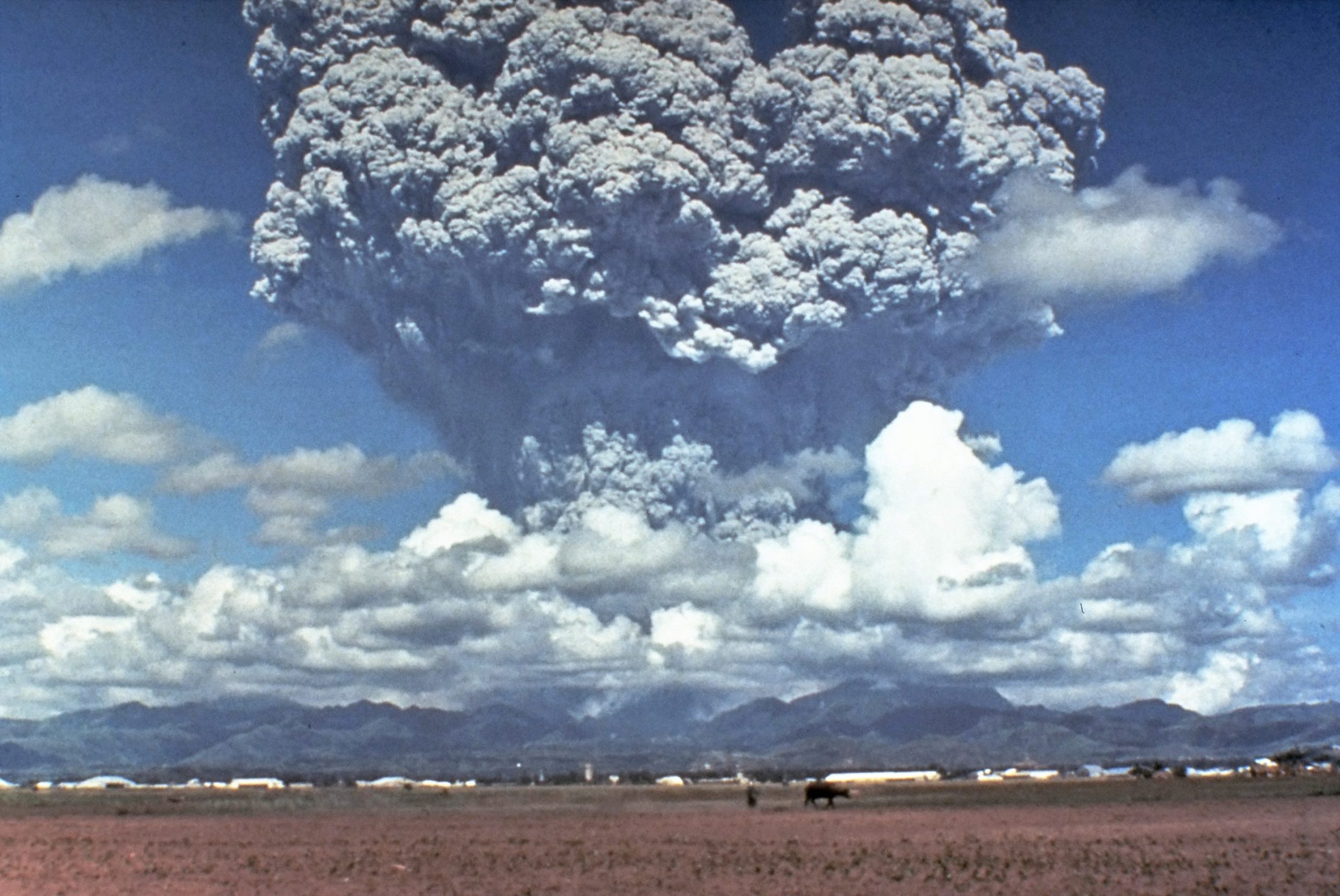
Episode 72 – Climate Change and the Globalization of Disease in the Early Middle Ages with Tim Newfield
Tim Newfield (Georgetown University) discusses the connected histories of climate change and disease pandemics with a focus on the early middle ages.
Episode Notes

Episode 71 – Zombie Films with Todd Platts
Todd Platts (Piedmont Virginia Community College) joins the Infectious Historians to discuss some of his work on zombie films as a form of disease movies.
Episode Notes

Episode 70 – Covid, Policy and History with Ben Trump
Ben Trump (US Army) joins Merle and Lee to discuss his job and its ties to Covid, policy and history.
Episode Notes

Episode 69 – Ottoman Medicines and Disease with Miri Shefer Mossensohn
Miri Shefer Mossensohn comes on the podcast to talk about her work on Ottoman histories of medicine and disease.
Episode Notes

Episode 68 – Persecution during the Black Death with Tzafrir Barzilay
Tzafrir Barzilay (Ben Gurion University of the Negev) comes on the podcast to discuss his work on persecution of minorities before and during the Black Death, particularly through allegations of well poisoning.
Episode Notes

Episode 67 – Plague in Bombay and Urban Ecology with Emily Webster
Emily Webster (University of Chicago) talks about her work on plague outbreaks in Bombay at the turn of the 20th century and the importance of ecology to the study of disease.
Episode Notes
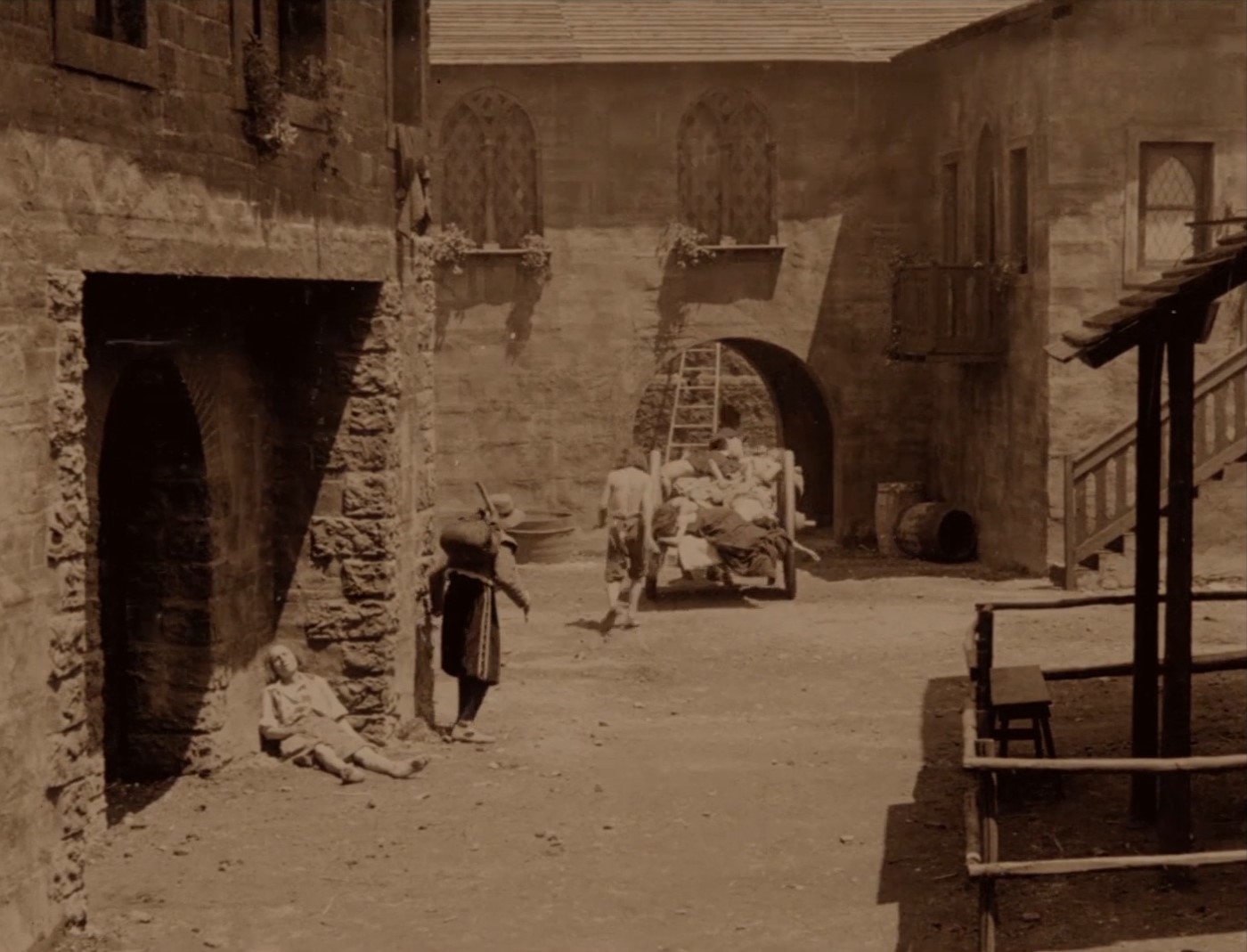
Episode 66 – Early Modern Pandemics, Quantitative Research and Inequality with Daniel Curtis
Daniel Curtis (Erasmus University Rotterdam) joins Merle and Lee to discuss his diverse work on early modern pandemics, inequality, quantitative methodologies and movies.
Episode Notes

Episode 65 – Scientific Freedom, the Cold War, and Communicating Science with Audra Wolfe
Audra Wolfe discusses her work on scientific freedom and its impact on how we think about science from the Cold War to the present day.
Episode Notes

Episode 64 – Commerce, Capitalism, and the Making of Modern Medicine with Zachary Dorner
Zachary Dorner (University of Maryland) joins Merle and Lee to discuss his work on the role of early modern commerce and capitalism in changing how medicine is administered and medical ideas about the body.
Episode Notes

Episode 63 – How Plague was Taught during a Pandemic with Janet Kay
Janet Kay (Princeton) returns to the podcast for her promised reflections on teaching a course on plagues and pandemics during the Spring 2021 semester with lessons learned and ideas for the future.
Episode Notes
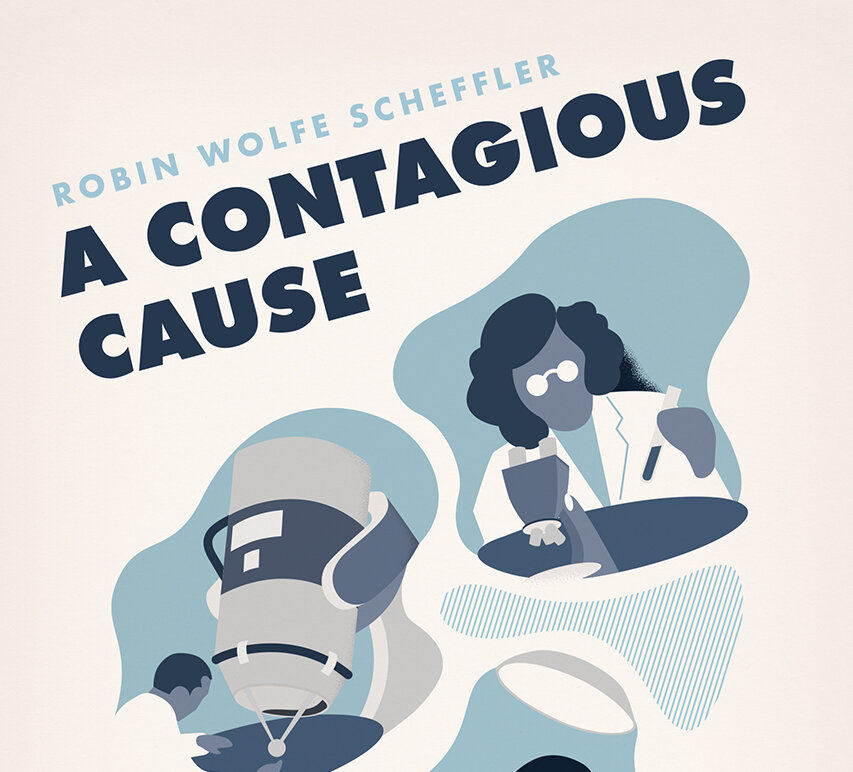
Episode 62 – Cancer with Robin Scheffler
Robin Scheffler (MIT) joins Merle and Lee to discuss his work on cancer, including the perception of cancer as an infectious disease.
Episode Notes

Episode 61 – Lyme Disease and Long Term Symptoms with Abigail Dumes
Abigail Dumes (University of Michigan) comes on the podcast to talk about Lyme Disease and how it has shaped clinical diagnoses and debates over long term symptoms
Episode Notes
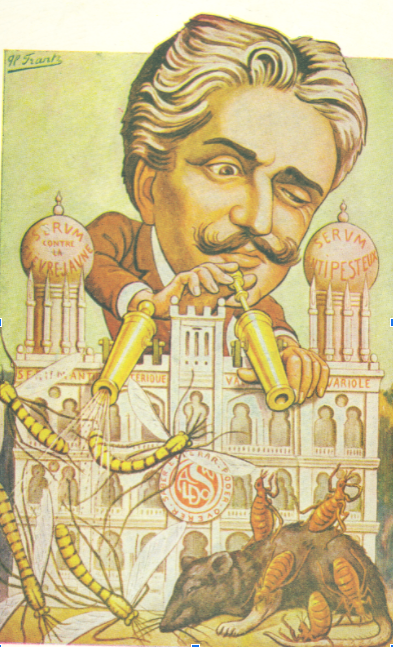
Episode 60- Plague and Microbiology in Brazil with Matheus Duarte
Matheus Duarte (University of St. Andrews) sits down with Merle and Lee to discuss plague in Brazil at the turn of the 20th century, medical solutions to the outbreak, and the creation of microbiology.
Episode Notes

Episode 59 – Covid Calls with Scott Knowles
Scott Gabriel Knowless comes on the podcast to discuss his daily show, Covid Calls, and what he has learned from talking to people from across the world since March 2020.
Episode Notes

Episode 58 – Carolingian Medicine with Meg Leja
Meg Leja (SUNY Binghamton) joins the podcast to discuss her work on the history of medicine and disease during the Early Middle Ages.
Episode Notes

Episode 57 – Historical Epidemiology with Jim Webb
Jim Webb (Colby College) comes on the podcast to talk about historical epidemiology and how it might transform the research on diseases in the past, present, and future.
Episode Notes

Episode 56 – Historical Demography of Infectious Diseases, Policy and Outreach with Svenn-Erik Mamelund
Svenn-Erik Mamelund (OsloMet) comes on the podcast to talk about his research as a historical demographer, using one’s research to influence policy and conducting outreach.
Episode Notes

Episode 55 – Polio in Hungary and the End of Epidemics with Dora Vargha
Dora Vargha (University of Exeter) sits down to talk about the impact of post-World War Two polio epidemics in Hungary and how these epidemics shed light on the end of pandemics.
Episode Notes
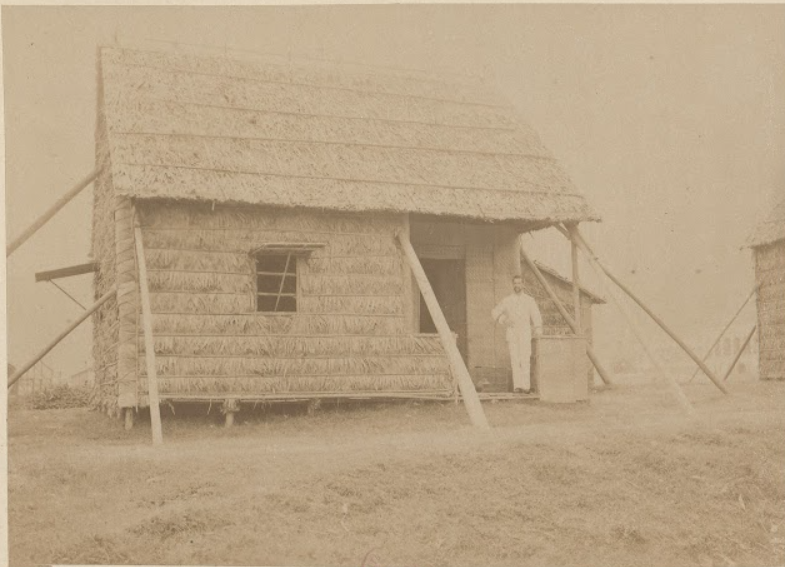
Episode 54 – Alexandre Yersin with Michael Vann
Michael Vann (California State University, Sacramento) returns to the Infectious Historians podcast, this time to discuss Alexandre Yersin’s life from a critical perspective.
Episode Notes

Episode 53 – Joshua Lederberg: Public Science and Re-Emerging Infectious Diseases with Nathan Crowe
Nathan Crowe (U. of North Carolina-Wilmington) discusses the career of the scientist Joshua Lederberg and his role as a public scientist and policy influencer across the second half of the 20th century.
Episode Notes

Episode 52 – 1st Anniversary!
Merle and Lee celebrate one year of Infectious Historians by reflecting on the past year, Covid, and the podcast.
Episode Notes

Episode 51 – Yellow Fever in New Orleans with Urmi Engineer Willoughby
Urmi Engineer Willoughby (Pitzer College) talks to Merle and Lee about her work on Yellow Fever outbreaks in New Orleans across the 19th century.
Episode Notes

Episode 50 – Ancient Medicine and Heresy with Jessica Wright
Jessica Wright (University of Sheffield) joins Merle and Lee to discuss her work linking ancient medicine and Christian heresy.
Episode Notes

Episode 49 – The Medieval Translation Movement and Late Ancient Medical Texts with John Mulhall
John Mulhall (Harvard University) discusses what the medieval translation movement was and his own work on how late ancient authors innovated in their medical knowledge about plague.
Episode Notes

Episode 48 – Black workers in the US Military: Immune or Infectious? with Khary Polk
Khary Polk (Amherst College) joins the Infectious Historians to discuss his work about Black laborers in the US military and their perceived immunity to infectious diseases in the first half of the 20th century.
Episode Notes

Episode 47 – HIV/AIDS: Patient Zero, History, and Popular Culture with Richard McKay
Richard McKay (University of Cambridge) discusses his work on the history of Patient Zero and the HIV/AIDS epidemic.
Episode Notes

Episode 46 – Ancient DNA and Paleogenetics with Stephanie Marciniak
Stephanie Marciniak (Penn State University) discusses her work studying historical diseases through their ancient DNA.
Episode Notes

Episode 45 – Teaching Plagues and Pandemics with Janet Kay
Janet Kay (Princeton University) discusses the planning, aims, and assignments for her course this semester (Spring 2021) “Art & Archaeology of Plague.”
Episode Notes
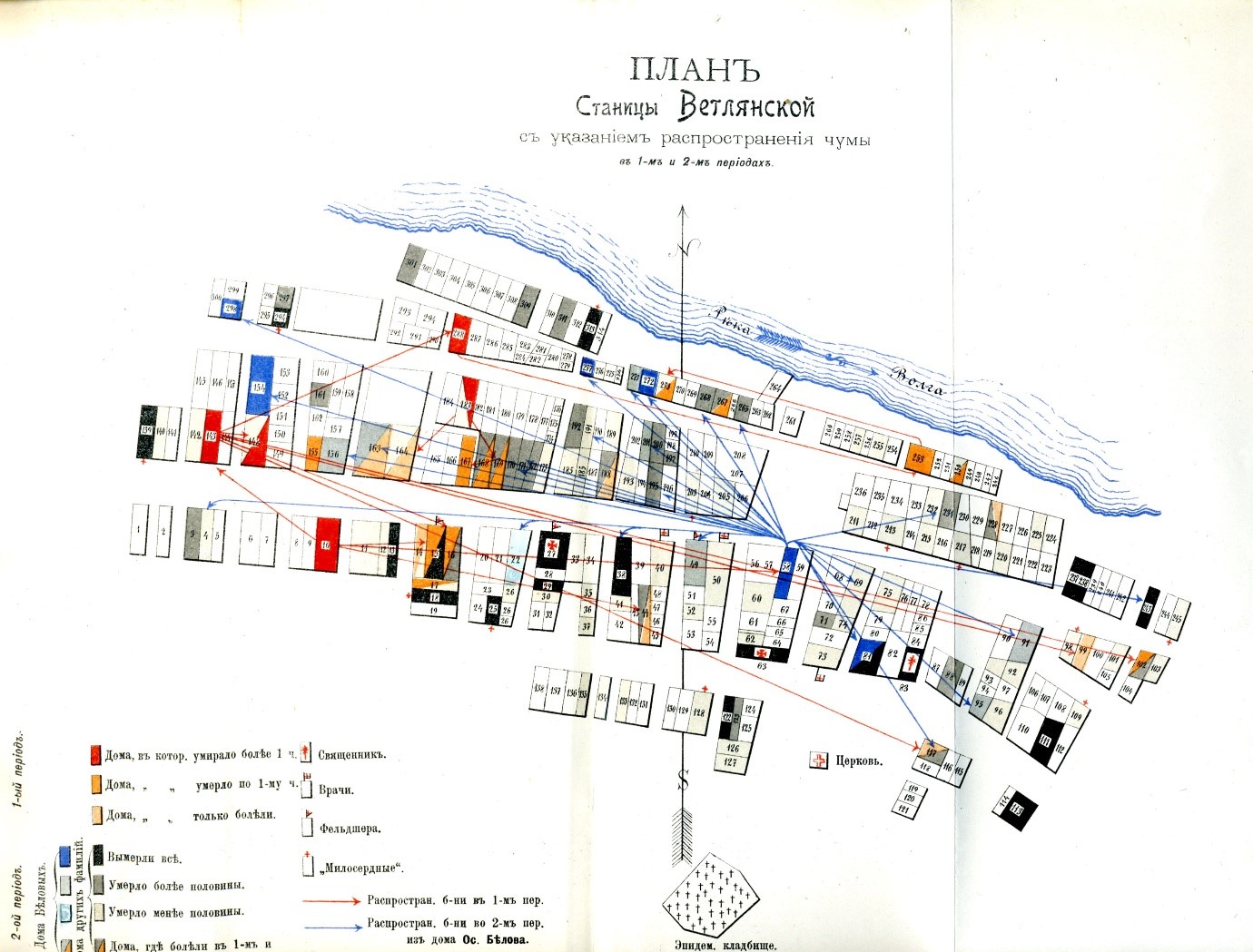
Episode 44 – Epidemiology and Infectious Disease Models with Lukas Engelmann
Lukas Engelmann (University of Edinburgh) discusses his work on the history of epidemiology and epidemiological models with Merle and Lee.
Episode Notes

Episode 43 – Ebola Outbreaks in West Africa with Adia Benton
Adia Benton (Northwestern University) discusses the 2014 West African Ebola outbreak and why Ebola, as a charismatic disease, has such a powerful hold over our imagination.
Episode Notes
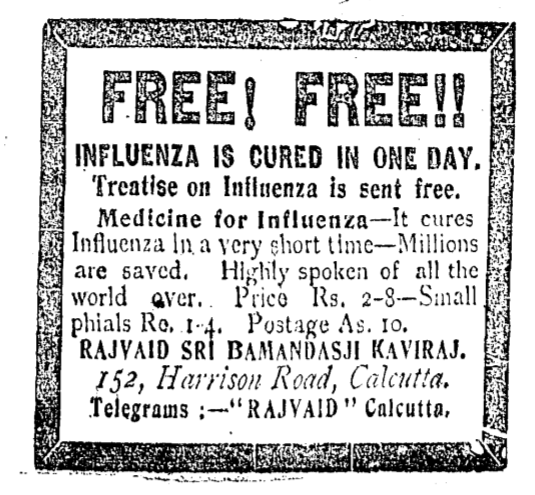
Episode 42- The Age of Pandemics in India and the World with Chinmay Tumbe
Chinmay Tumbe (Indian Institute of Management Ahmedabad) discusses his new book, The Age of Pandemics, that focuses on the cholera, plague, and the 1918 Influenza pandemics in India.
Episode Notes
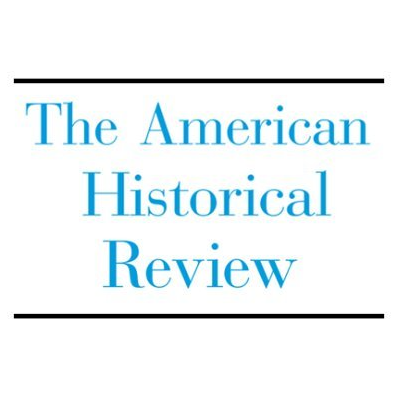
Episode 41 – The Justinianic Plague and the Making of the Plague Concept
Merle and Lee discuss a recent article that they wrote on the Justinianic Plague that has been published, and tie it to some of the discussions they’ve had on the podcast.
Episode Notes

Episode 40 – Forgetting and Remembering the 1918 Influenza Pandemic with Guy Beiner
Guy Beiner (Ben-Gurion University of the Negev) discusses how people and societies have forgotten and remembered the 1918 Influenza Pandemic over the last century.
Episode Notes

Episode 39 – Environmental History: Past, Present, and Future with John McNeill
John McNeill (Georgetown University) discusses the state of the field of environmental history including its development, what it looks like now, and where it might be going.
Episode Notes

Episode 38 – Animals and Epidemics with Susan Jones
Susan Jones (University of Minnesota) discusses the key role of animals in the spread of diseases and the outbreak of epidemics, focusing on plague in Soviet Central Asia.
Episode Notes
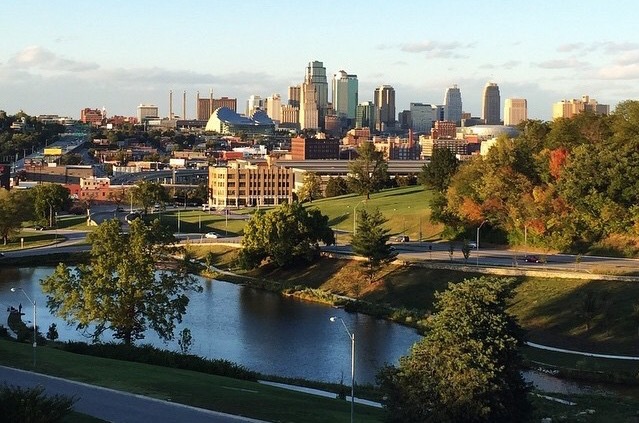
Episode 37 – The Local Effects of Covid in Kansas City with A.J. Herrmann
A.J. Herrmann (Director of Policy for Mayor Quinton Lucas of Kansas City, Missouri) talks about how he helped develop and implement Covid policies for Kansas City and the responses and difficulties in the city since March.
Episode Notes

Episode 36 – Epidemics, the Media, and Collective Memory with Katie Foss
Katie Foss (Middle Tennessee State University) talks about her recent work on the role of the media in shaping how we think and remember epidemics in U.S. history.
Episode Notes
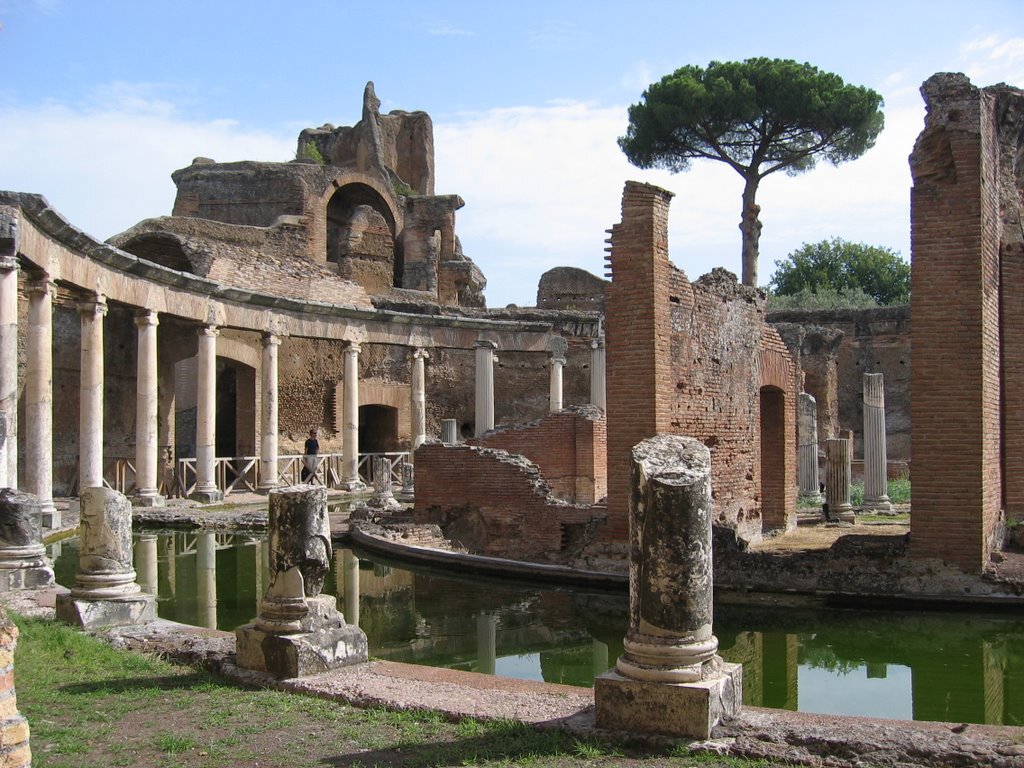
Episode 35 – Ancient Malaria with David Pickel
David Pickel (Stanford University) discusses malaria in the ancient world with a focus on Roman Italy.
Episode Notes

Episode 34 – Vaccinations in China with Mary Augusta Brazelton
Mary Brazelton (University of Cambridge) comes on the podcast to discuss vaccinations in China during the 20th century.
Episode Notes

Episode 33 – Syphilis and Sexual Health in the United States (1890-1940) with Elliott Bowen
Elliott Bowen (Nazarbayev University) discusses syphilis and sexual health in Hot Springs, Arkansas with Merle and Lee
Episode Notes
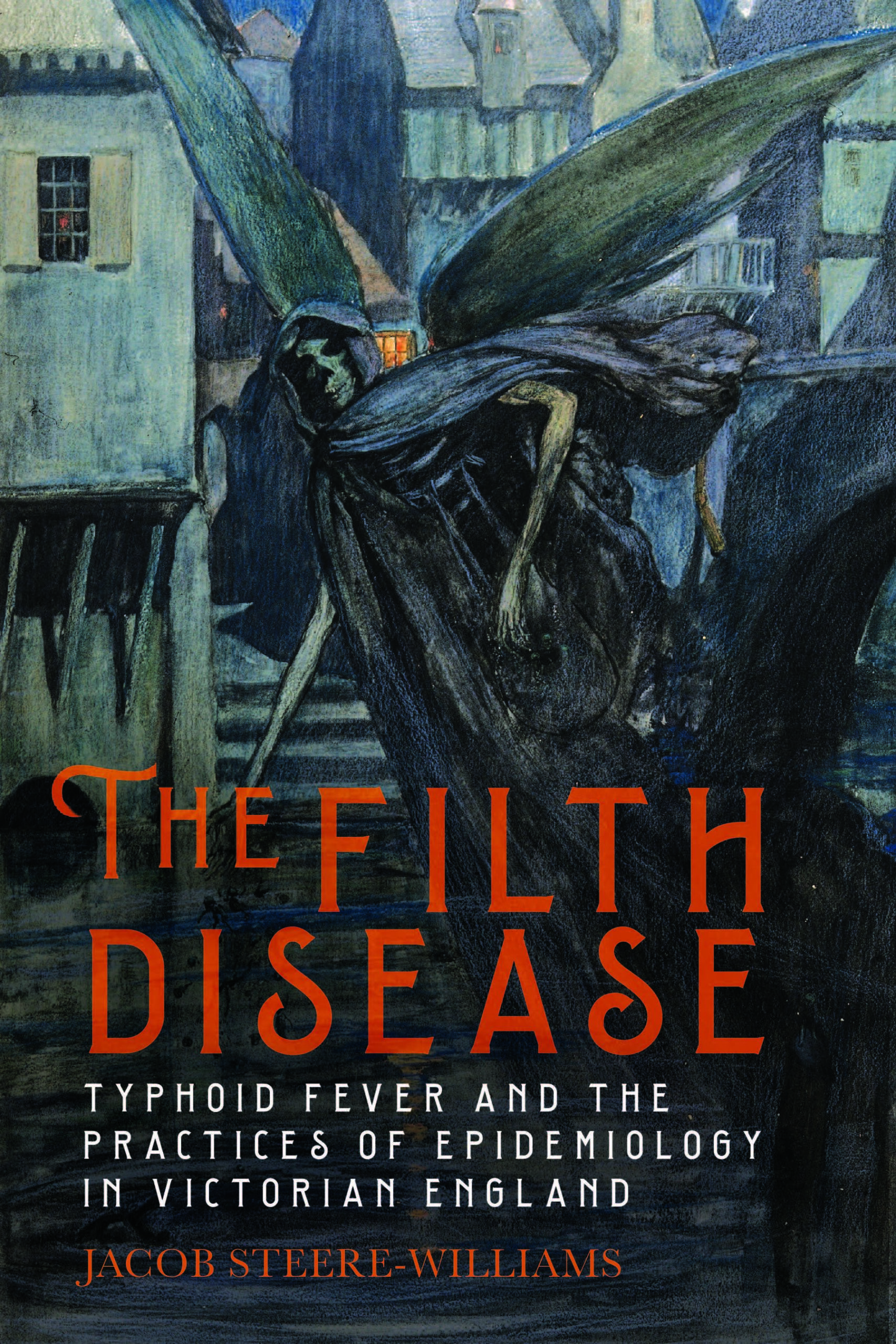
Episode 32 – Typhoid Fever and Epidemiology in Victorian England with Jacob Steere-Williams
Jacob Steere-Williams (College of Charleston) talks to Lee and Merle about typhoid fever and the development of epidemiology as a field of study.
Episode Notes

Episode 31 – Indigenous Perceptions of Disease: Smallpox in Mexico with Tara Malanga
Tara Malanga (Rutgers University) joins Merle and Lee to discuss indigenous perceptions of disease in the context of post-Contact Mexico.
Episode Notes
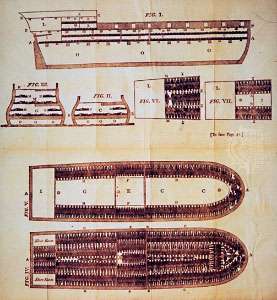
Episode 30 – Smallpox, Slavery, and Vaccinations with Elise Mitchell
Elise Mitchell (NYU) talks about her work on smallpox vaccinations and forced inoculations for enslaved people in the Caribbean during the 17th and 18th centuries.
Episode Notes
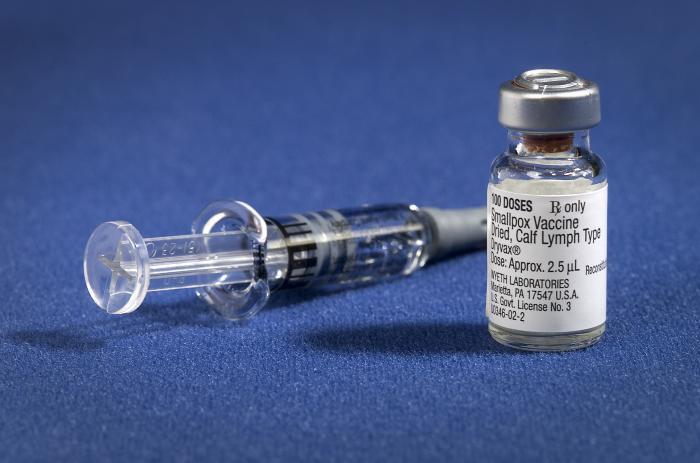
Episode 29 – Vaccinations and anti-Vaxxers with Jim Harris
Jim Harris (Ohio State University) discusses the development of vaccinations and anti-vaccination sentiments since the 18th century.
Episode Notes

Episode 28 – The Great Hanoi Rat Hunt with Michael Vann
Michael Vann (California State University, Sacramento) joins Merle and Lee to talk about the rat hunt following a plague outbreak in colonial Vietnam.
Episode Notes
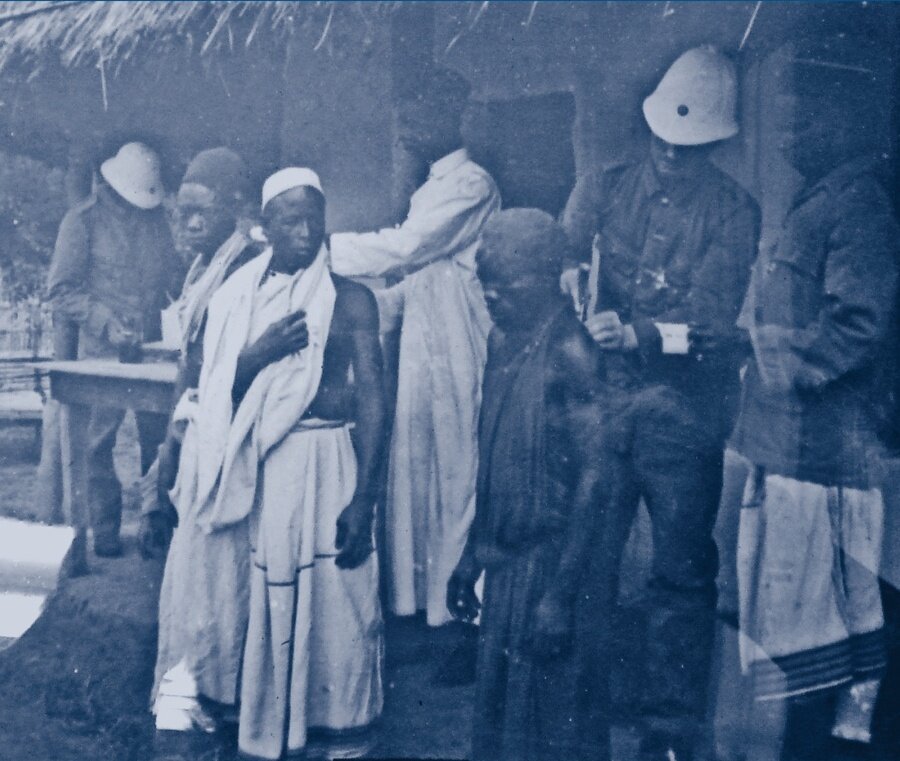
Episode 27 – Sleeping Sickness in East Africa with Mari Webel
Mari Webel (University of Pittsburgh) talks to Merle and Lee about sleeping sickness and the impact of colonization in East Africa.
Episode Notes

Episode 26 – Playing Pandemic: Infectious Diseases in Games
Merle and Lee discuss the late antique Justinianic Plague (c. 541-750), their current topic of research.
Episode Notes

Episode 25 – Germ Theory and Popular Culture with Nancy Tomes
Nancy Tomes (Stony Brook) discusses the development of Germ Theory and how its ideas spread through advertising and other popular media.
Episode Notes

Episode 24 – The Outbreak Narrative with Priscilla Wald
Priscilla Wald (Duke University) comes on the podcast to discuss the outbreak narrative, a common way through which we understand infectious diseases.
Episode Notes
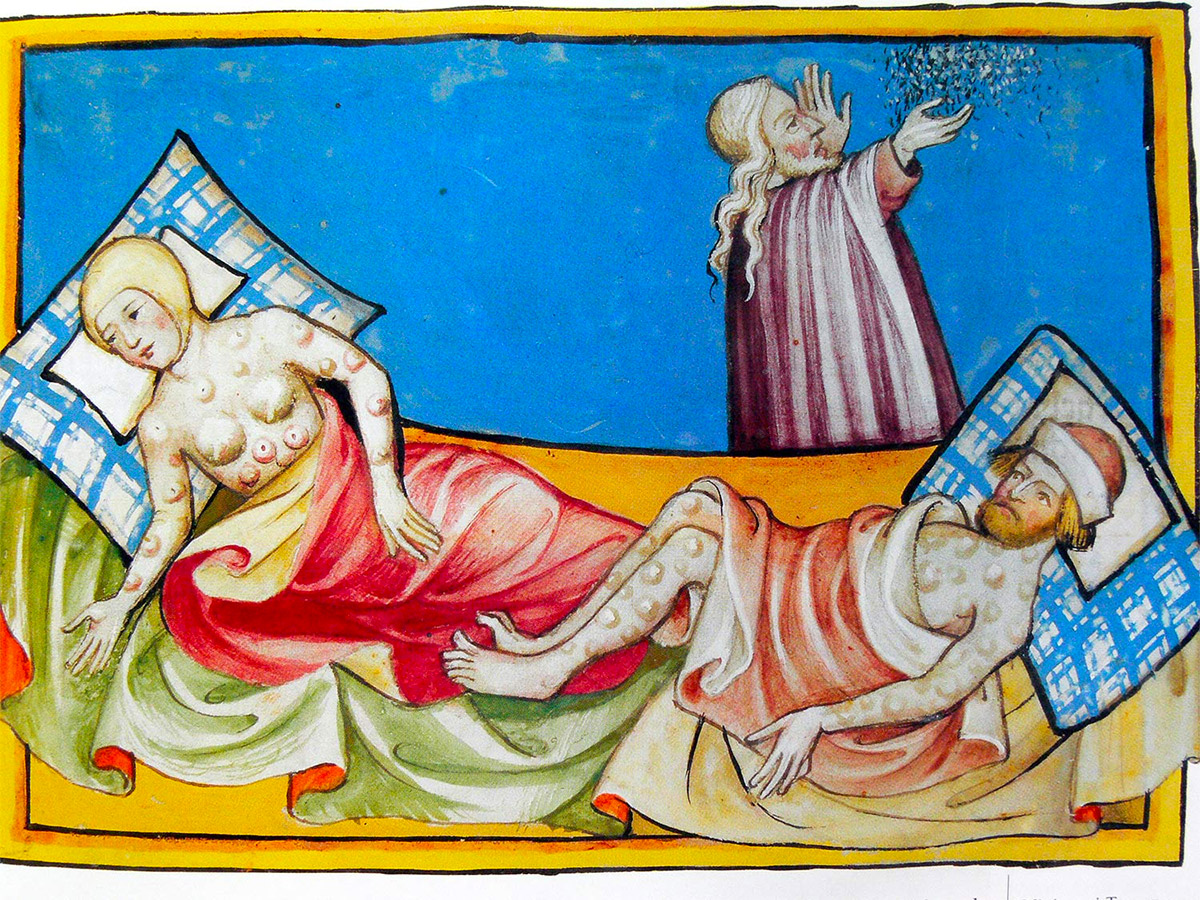
Episode 23 – Myths and Legends about the Black Death
Merle and Lee discuss the late antique Justinianic Plague (c. 541-750), their current topic of research.
Episode Notes

Episode 22 – Virology Research Developments with Vincent Racaniello
Vincent Racaniello (Columbia University) joins Merle and Lee to discuss developments in the field of virology over the past few decades.
Episode Notes

Episode 21 – Iran in the Age of Cholera with Amir Afkhami
Amir Afkhami (George Washington University) talks about modern cholera pandemics with a focus on their impact on Iran.
Episode Notes
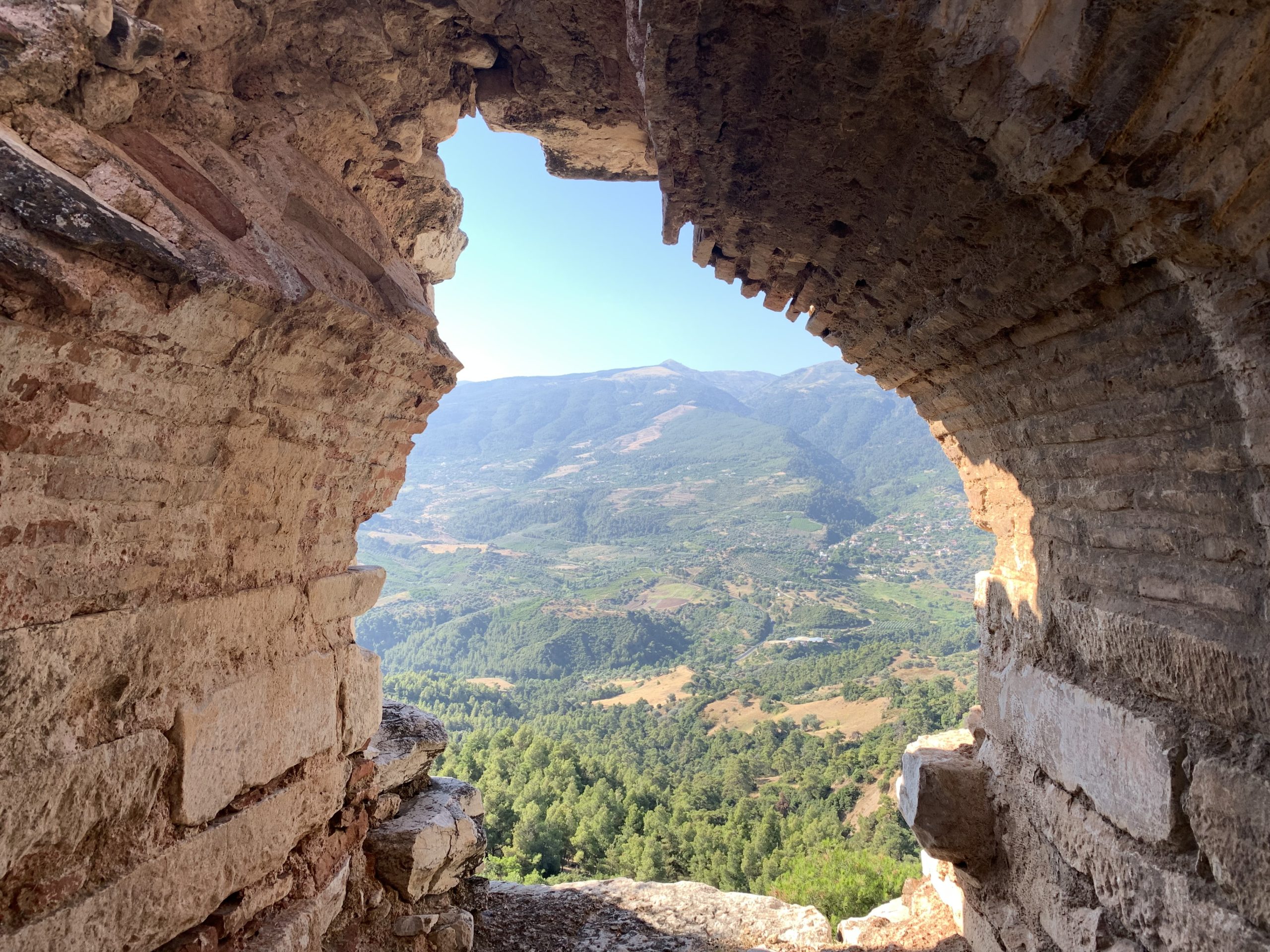
Episode 20 – Archaeology and Infectious Diseases with Jordan Pickett
Jordan Pickett (U Georgia) comes on the podcast to discuss archaeology and potential signals of infectious diseases in archaeological finds.
Episode Notes
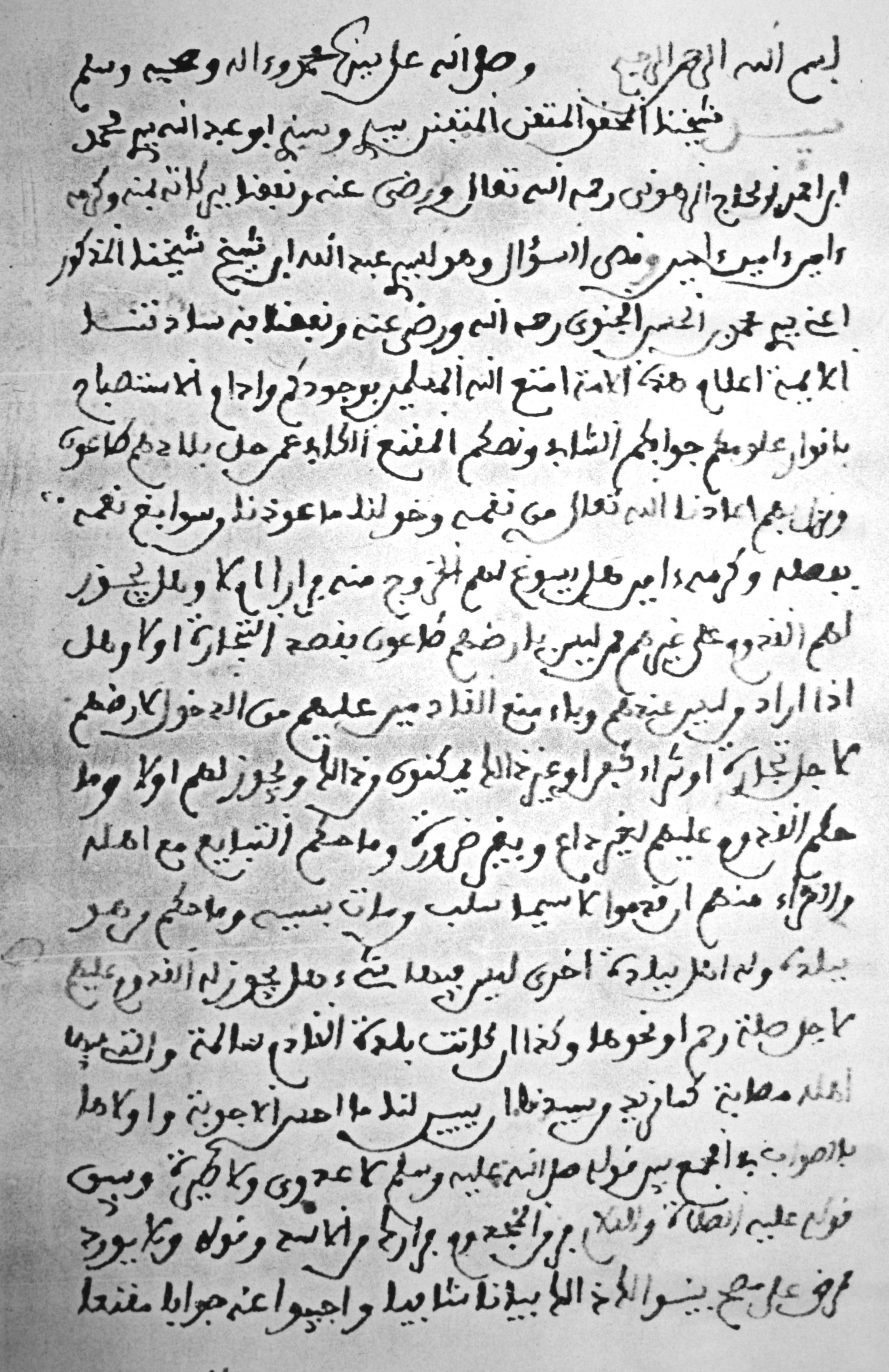
Episode 19 – Plague and Contagion in the Medieval Islamic World with Justin Stearns
Liat Kozma (Hebrew University of Jerusalem) discusses the development of medicine in the Middle East.
Episode Notes

Episode 18 – Medicine in the Middle East, 1830-1950 with Liat Kozma
Liat Kozma (Hebrew University of Jerusalem) discusses the development of medicine in the Middle East.
Episode Notes

Episode 17 – Resilience and Rebounding from Crises with John Haldon
John Haldon (Princeton University) discusses the idea of resilience to systemic crises with a focus on the seventh-century Byzantine Empire.
Episode Notes
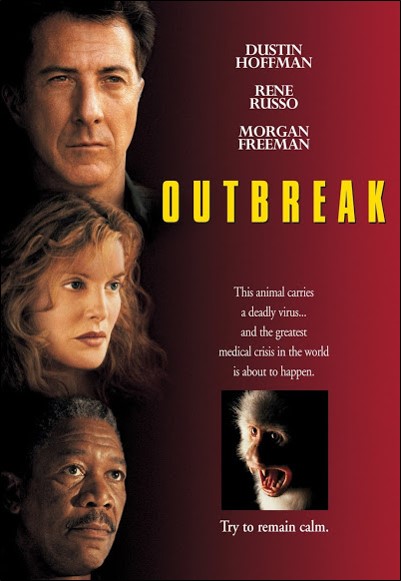
Episode 16 – Pandemics in Film with Robert Alpert
Robert Alpert (Fordham and Hunter College) discusses how pandemics are depicted in film, and what might we learn about the past from these films.
Episode Notes
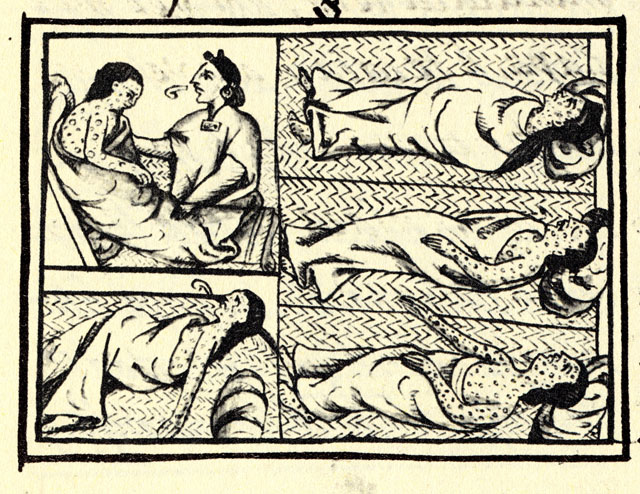
Episode 15 – Diseases and Native Americans from Colonial Hawaii to Covid-19 with Seth Archer
Seth Archer (Utah State) discusses the various diseases that devastated Native Americans focusing on their impact in Hawaii.
Episode Notes
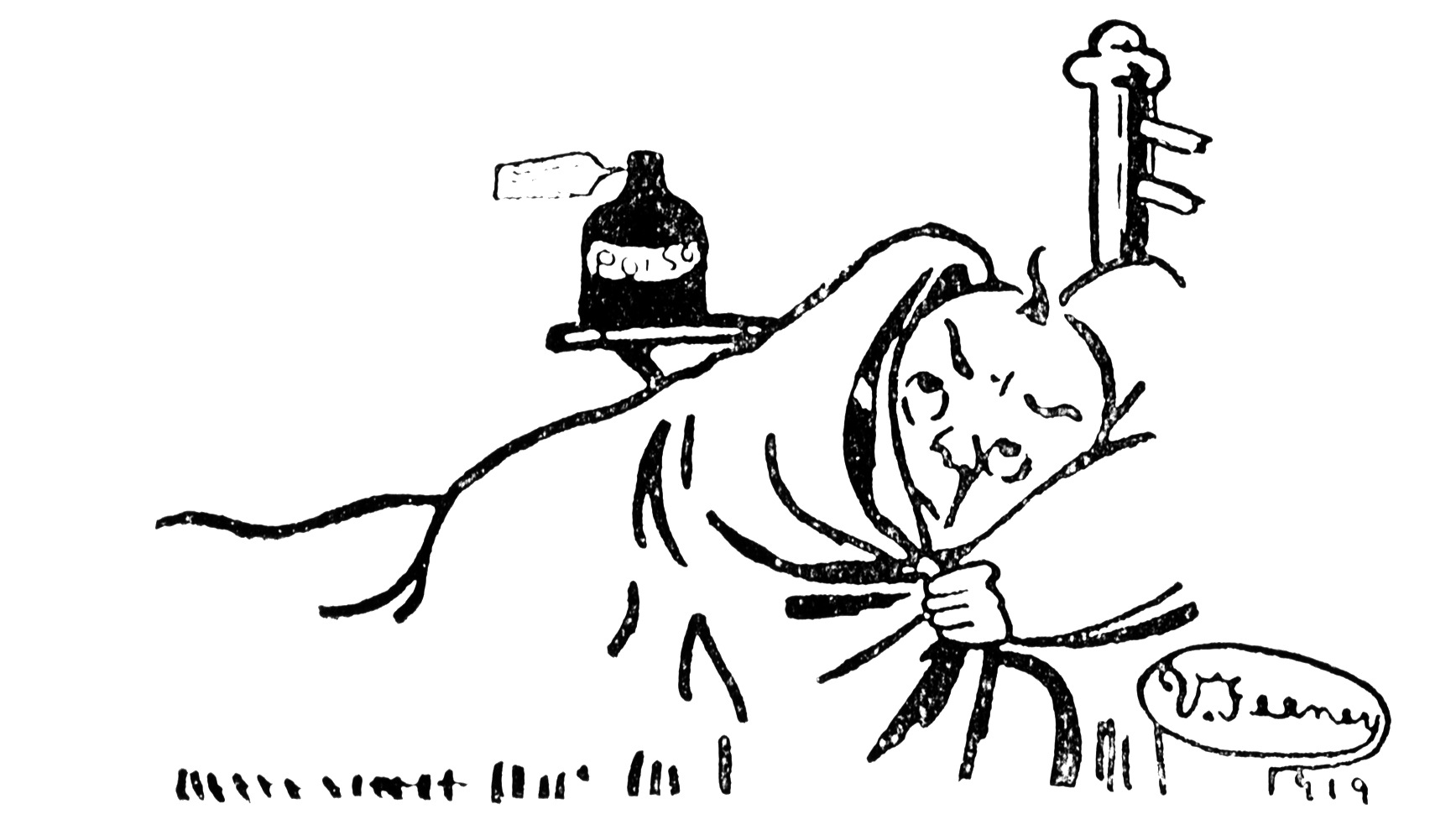
Episode 14 – The Influenza Pandemic of 1918 with Ida Milne
Chris De Wet joins Merle and Lee to discuss his work on using discourse analysis to better understand late antique disease through the eyes of the people who experienced them.
Episode Notes

Episode 13 – Medieval Public Health with Guy Geltner and Janna Coomans
Guy Geltner and Janna Coomans join Merle and Lee to talk about what public health was like in medieval cities and why their work has important political implications for today.
Episode Notes

Episode 12 – Fact, Fiction, or Both? A Discourse Approach to Historical Disease with Chris de Wet
Chris De Wet joins Merle and Lee to discuss his work on using discourse analysis to better understand late antique disease through the eyes of the people who experienced them.
Episode Notes
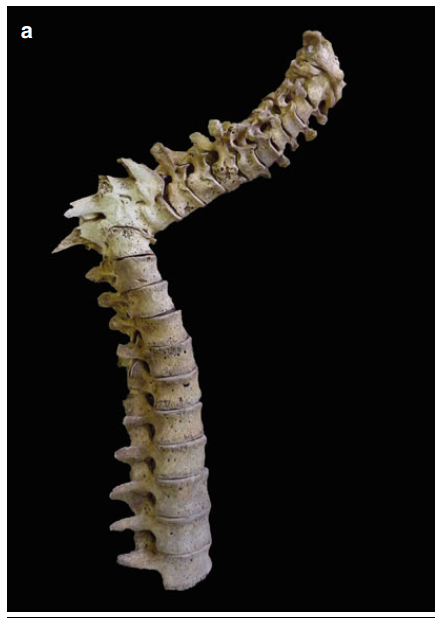
Episode 11 – Tuberculosis in the Ancient World
Julia Simons talks to Merle and Lee about the evidence for tuberculosis and its effects around the Ancient World.
Episode Notes

Episode 10 – The Third Pandemic
Christos Lynteris, a leading expert on the Third Plague Pandemic, discusses the Third Pandemic and its impacts during the 20th century.
Episode Notes

Episode 9 – Public Health in the mid-20th Century
Thomas Zimmer speaks with Merle and Lee about the emergence and development of global public health from World War Two to the present.
Episode Notes
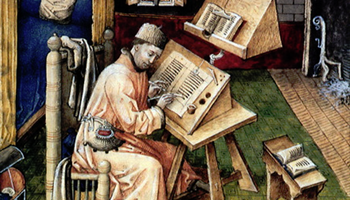
Episode 8 – Studying Historical Epidemics
Merle and Lee discuss the late antique Justinianic Plague (c. 541-750), their current topic of research.
Episode Notes
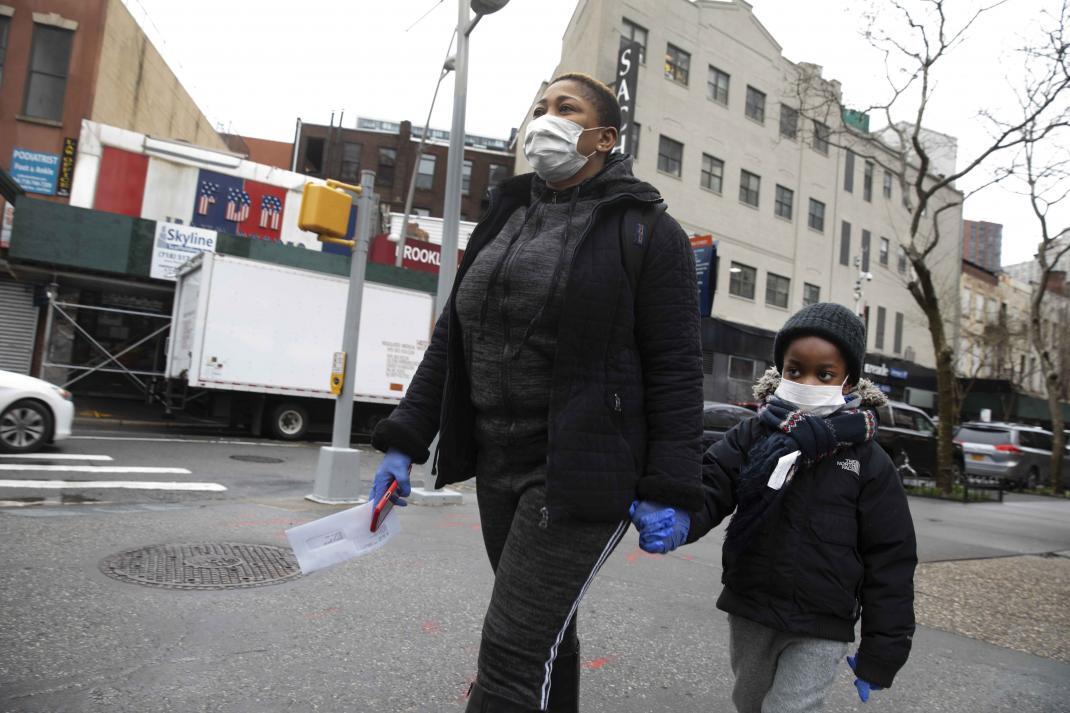
Episode 7 – Links between Environmental Justice and COVID-19
Fushcia Hoover sits down to talk to Merle and Lee about the connections between environmental justice and the impact of COVID-19 on a community level.
Episode Notes
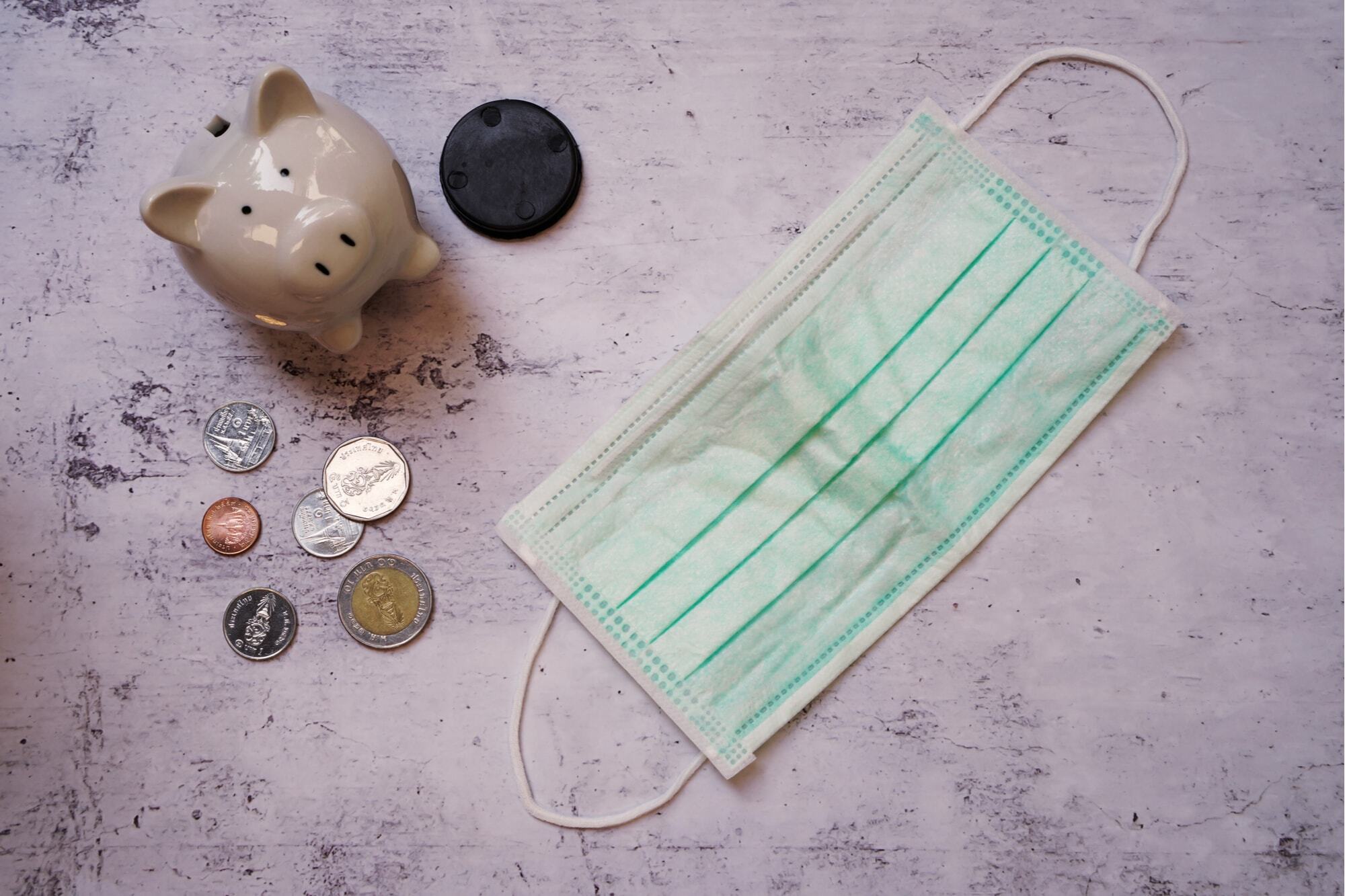
Episode 6 – COVID-19 and Inequality in the United States today
Michelle Smirnova, a sociologist (University of Missouri, Kansas City), joins Merle and Lee to discuss some of the present-day effects of COVID-19 in the US.
Episode Notes

Episode 5 – The Black Death Part 2: Central Asia
Merle and Lee talk to Phil Slavin about the evidence for the impact of the Black Death in Central Asia before it arrived more famously in Europe.
Episode Notes

Episode 4 – The Black Death
Abigail Agresta joins the podcast to discuss the most infamous pandemic in history - the Black Death.
Episode Notes
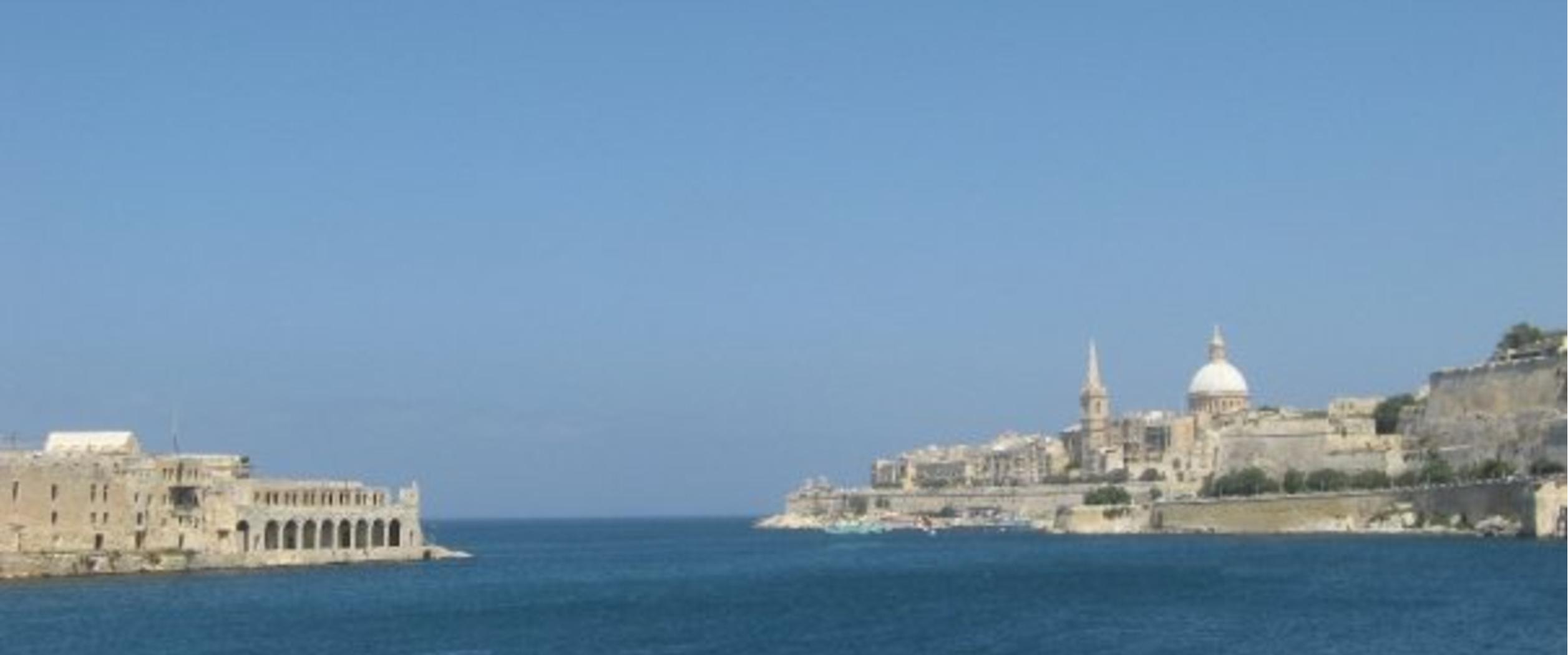
Episode 3 – Quarantine in the Past & Social Distancing Today
Merle and Lee have their first guest, Alex Chase-Levenson, on the podcast to discuss historical quarantine and its relationship to social distancing in the present.
Episode Notes
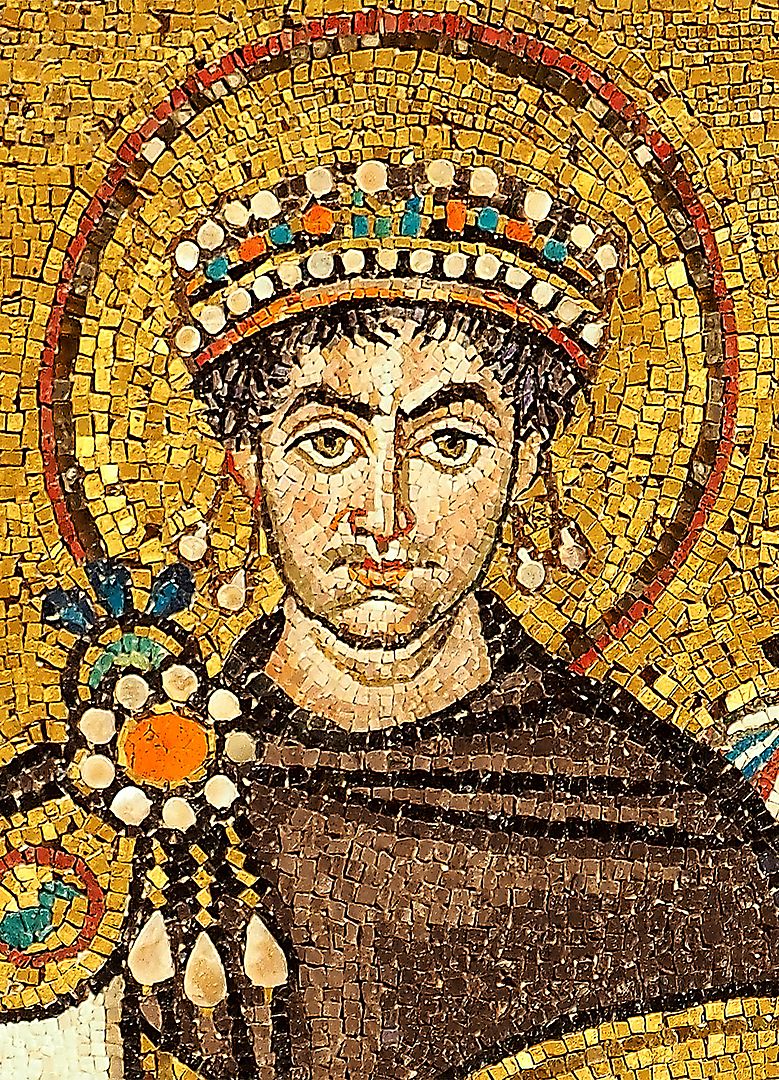
Episode 2 – The Justinianic Plague
Merle and Lee discuss the late antique Justinianic Plague (c. 541-750), their current topic of research.
Episode Notes
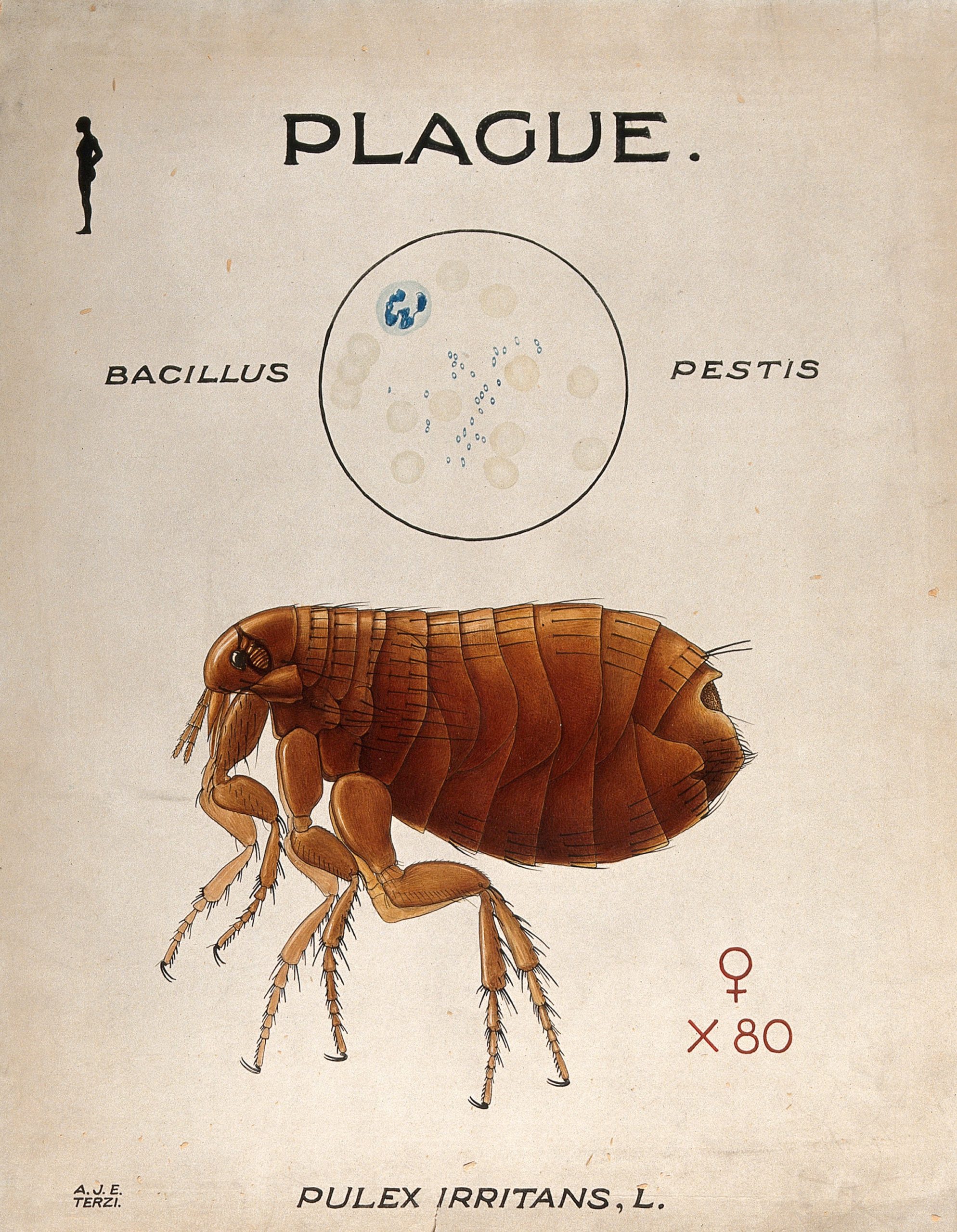
Episode 1 – Plagues in Human History
Merle and Lee discuss the most famous disease in human history, the plague, and give an overview of its impact.
Episode Notes

Episode 0 – Introduction
An introductory episode in which Merle and Lee discuss the podcast and introduce themselves.
Episode Notes